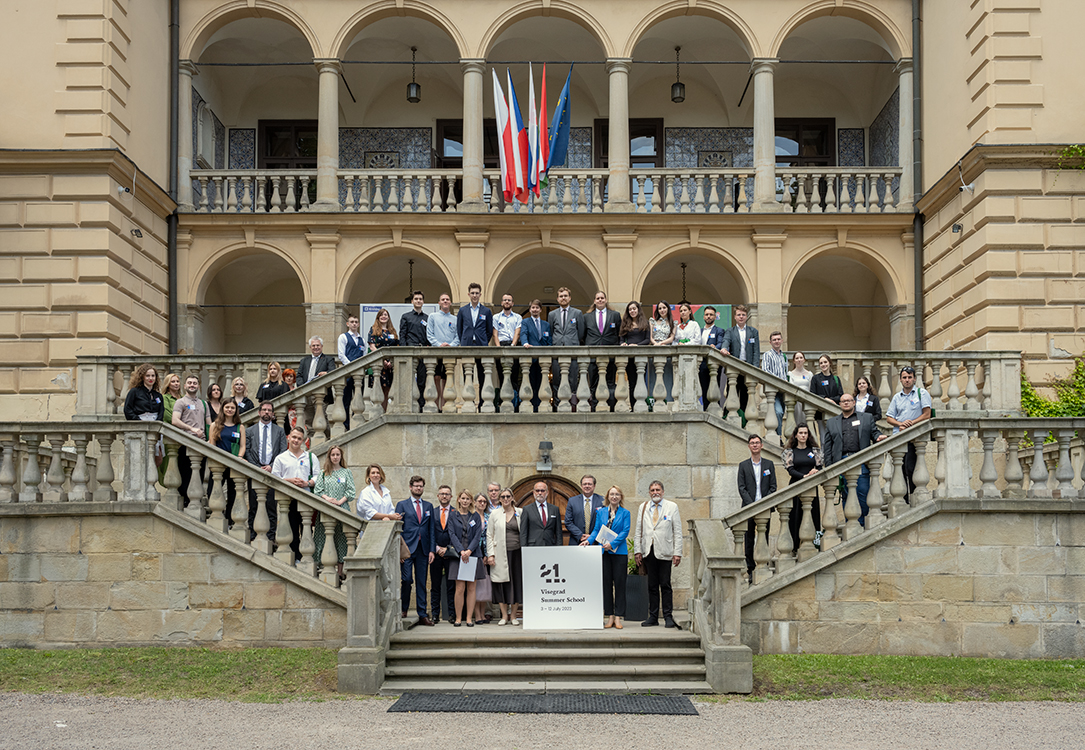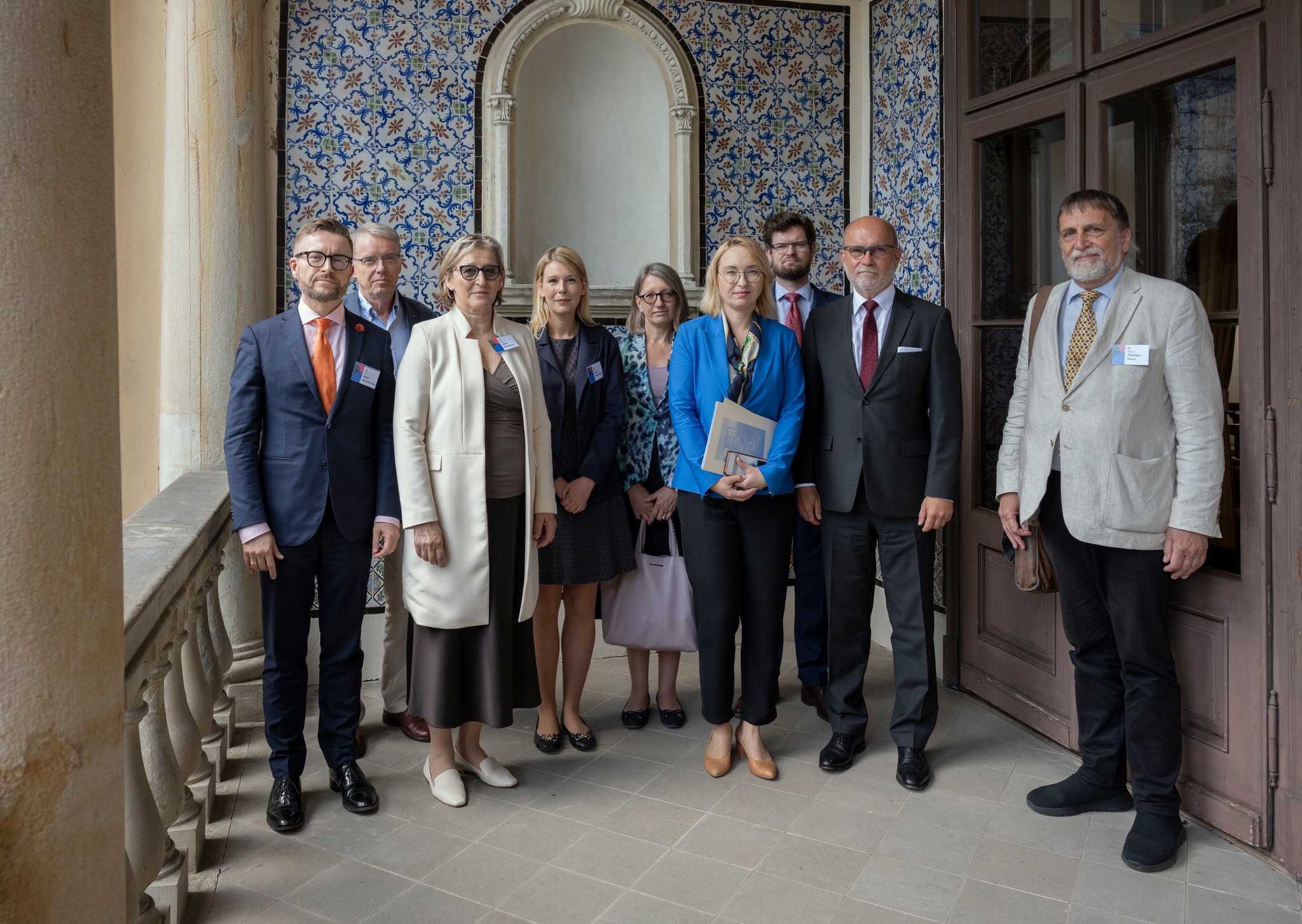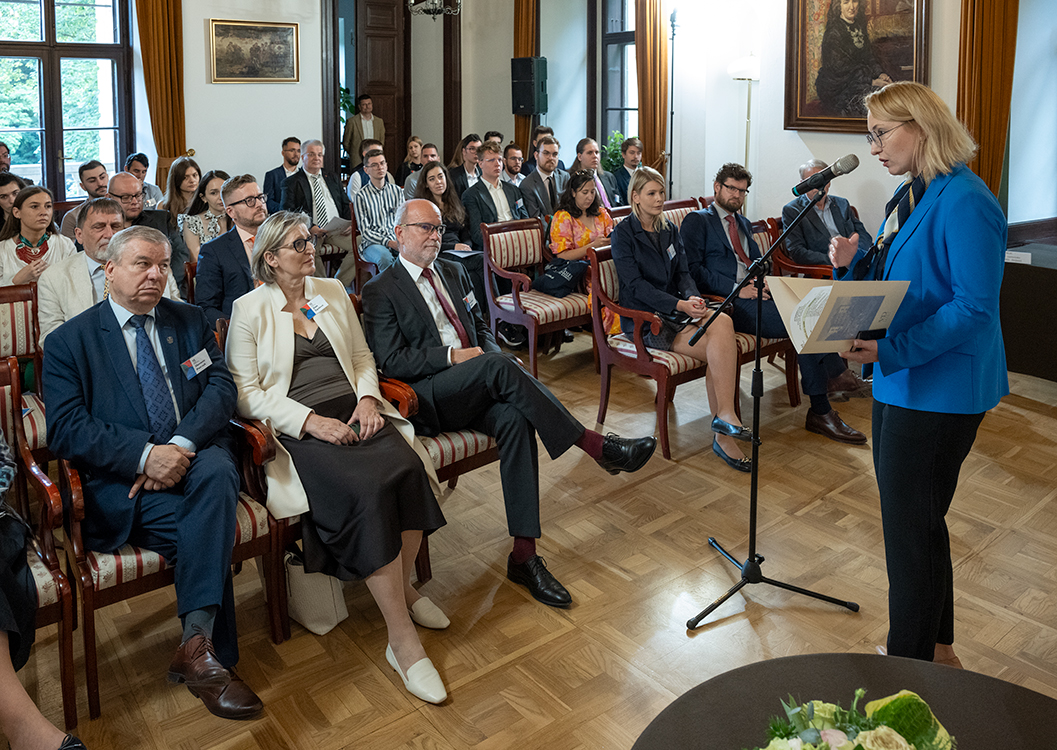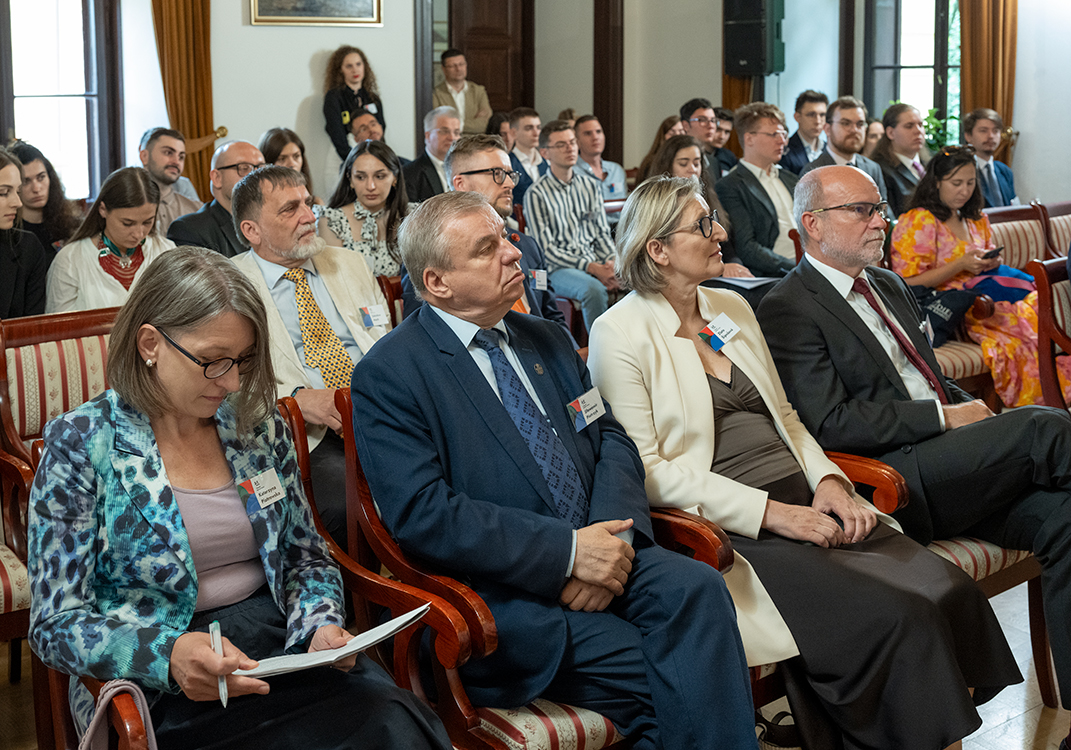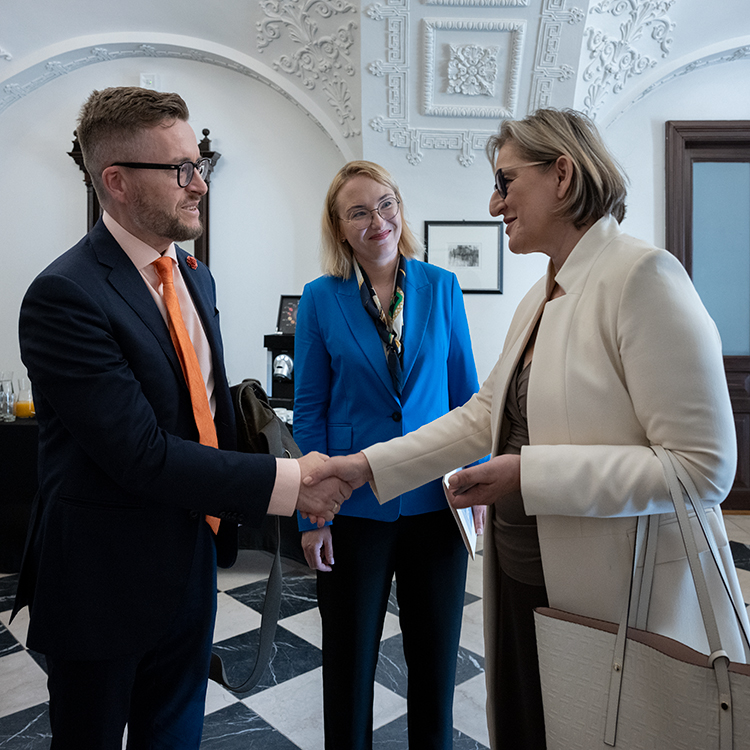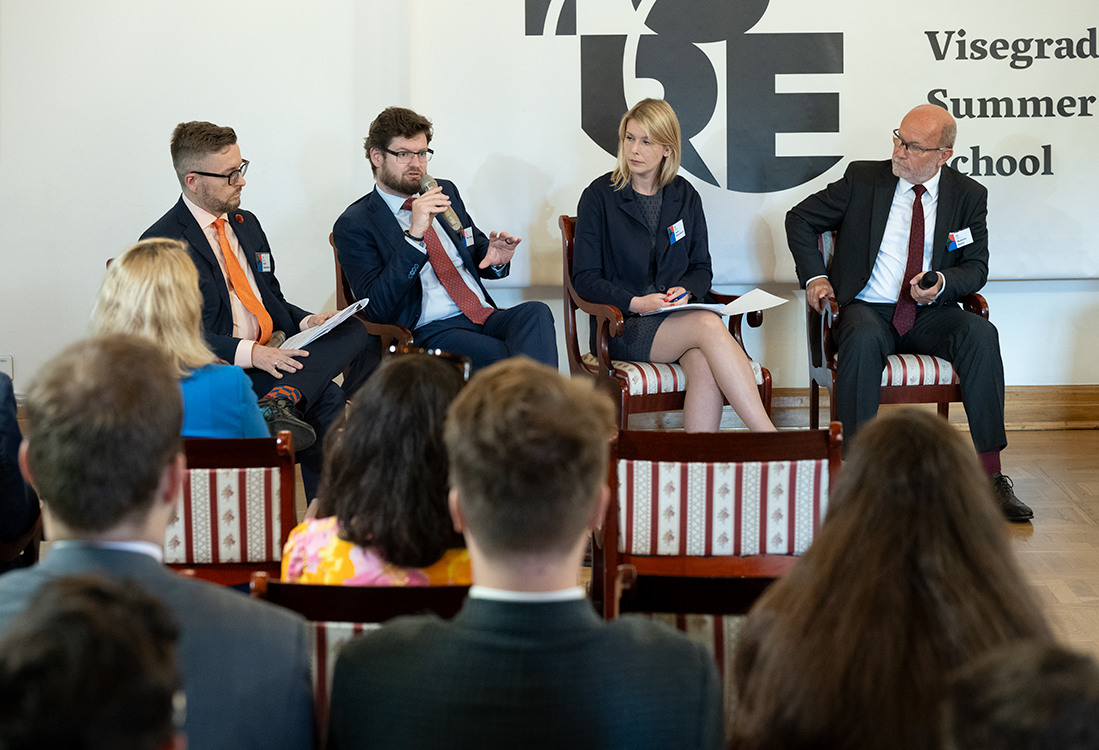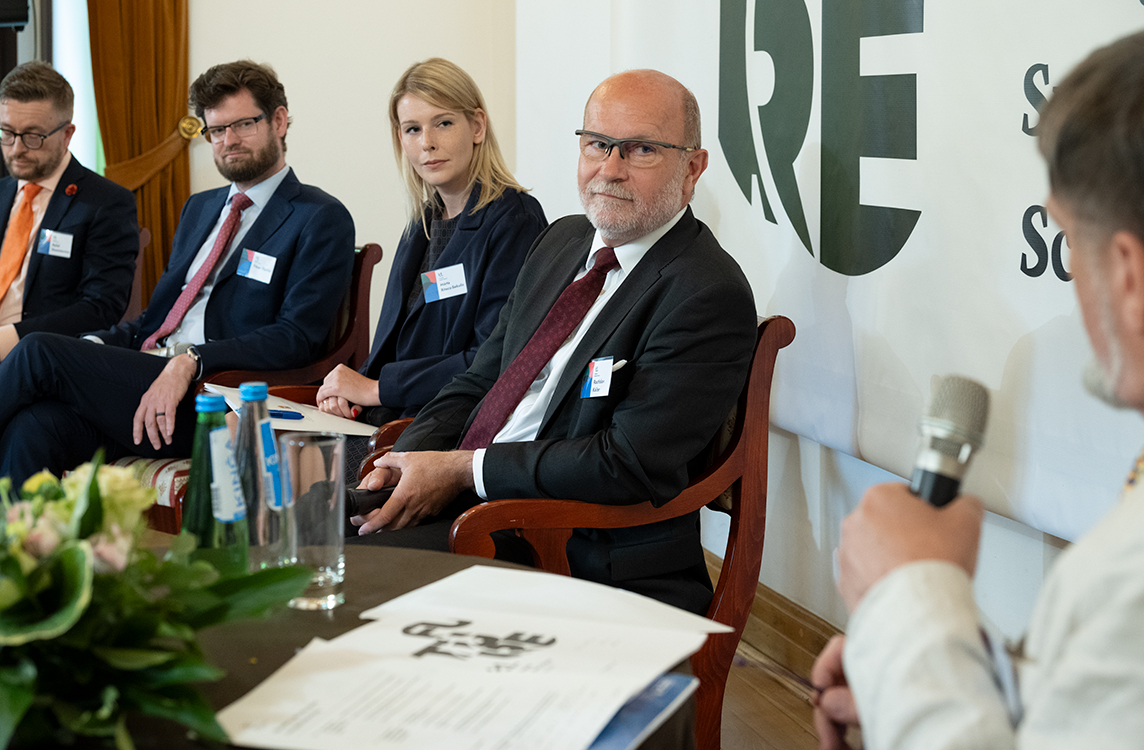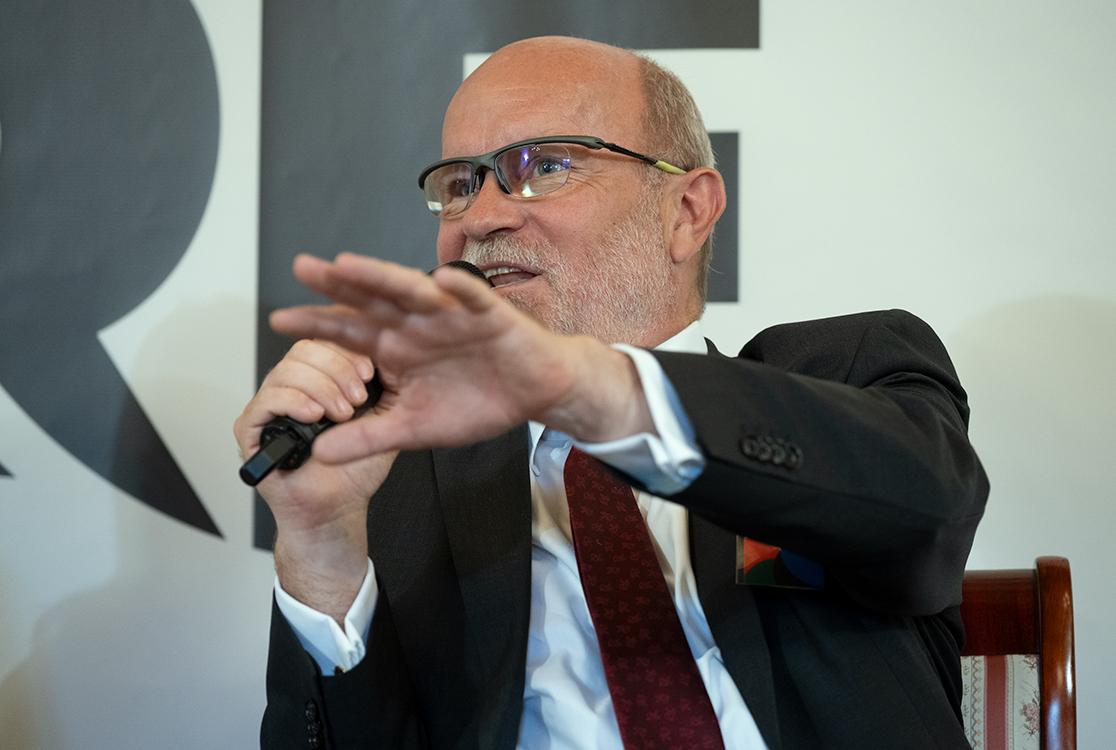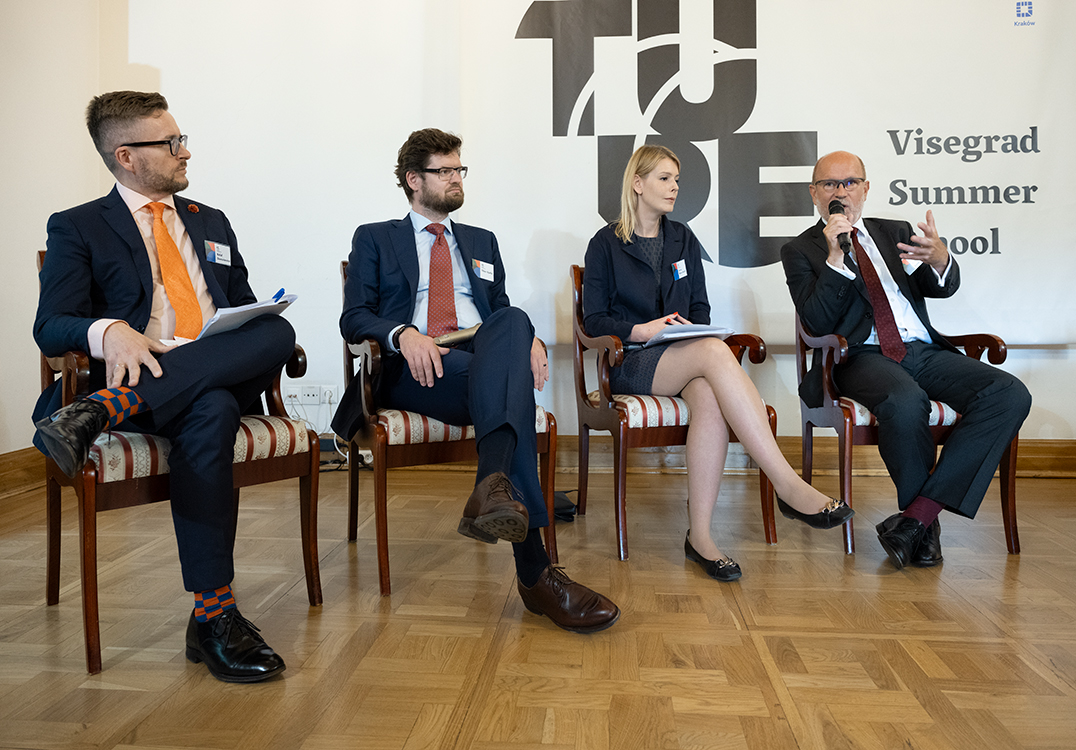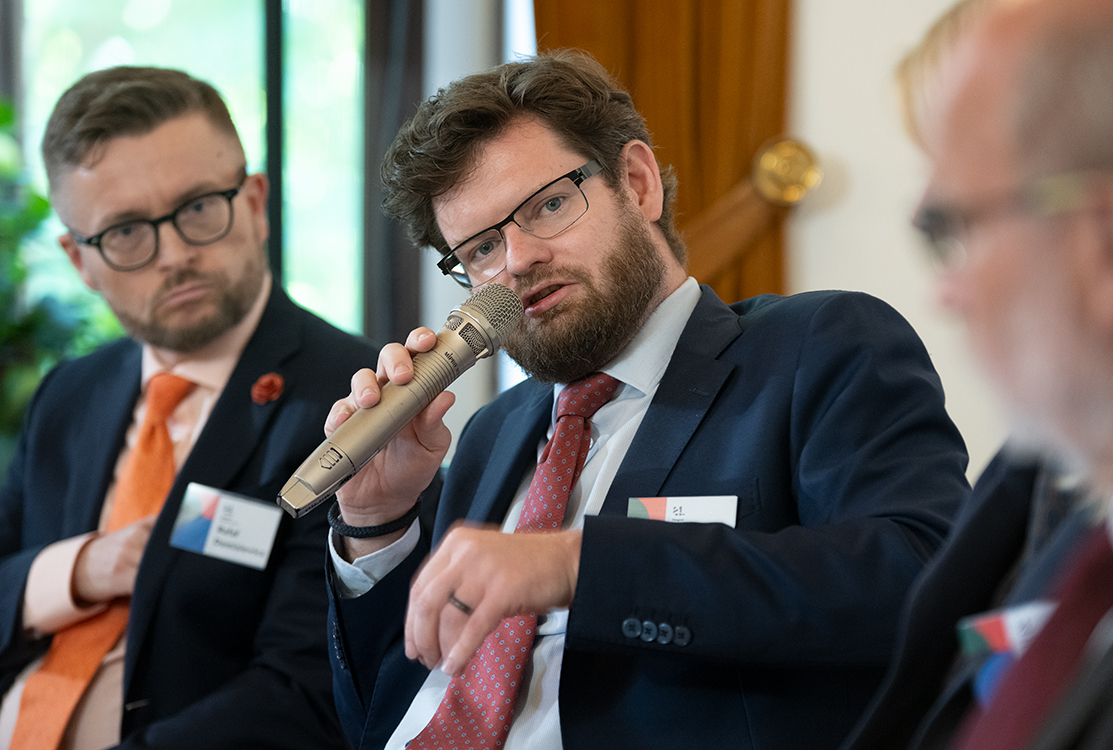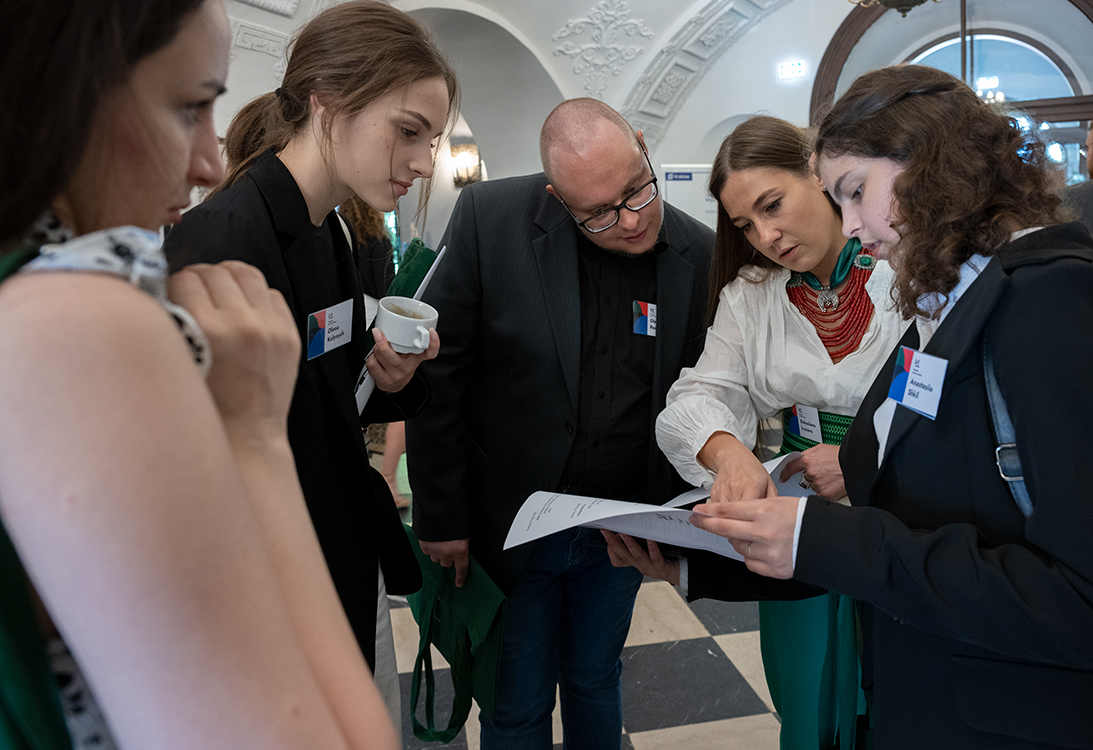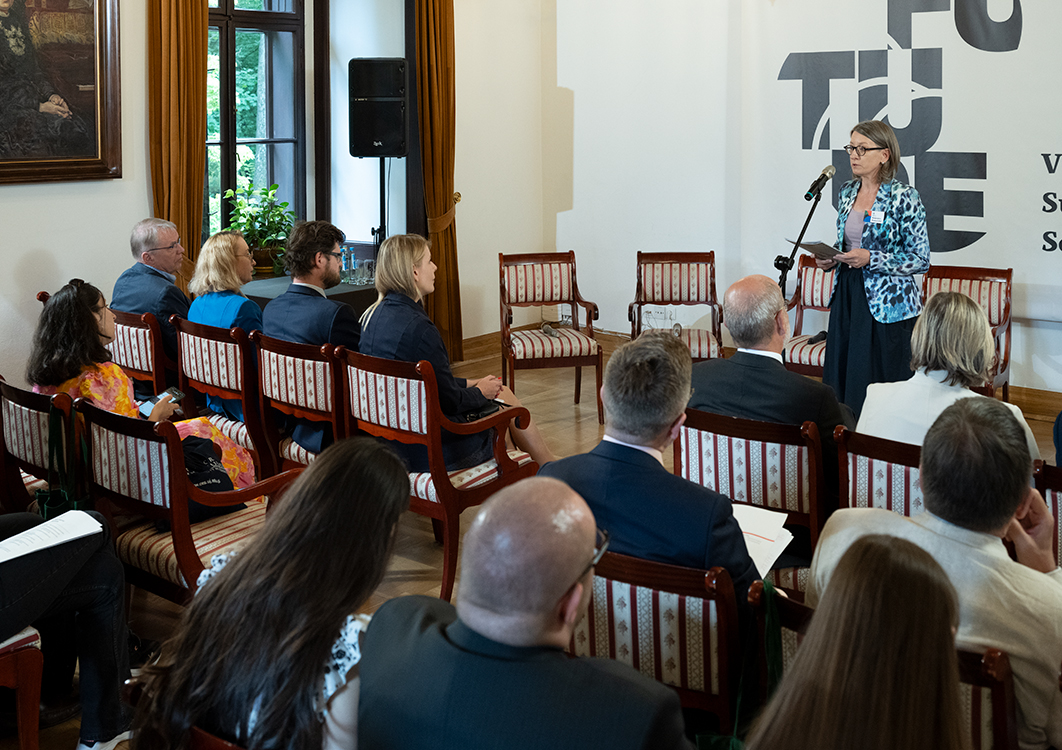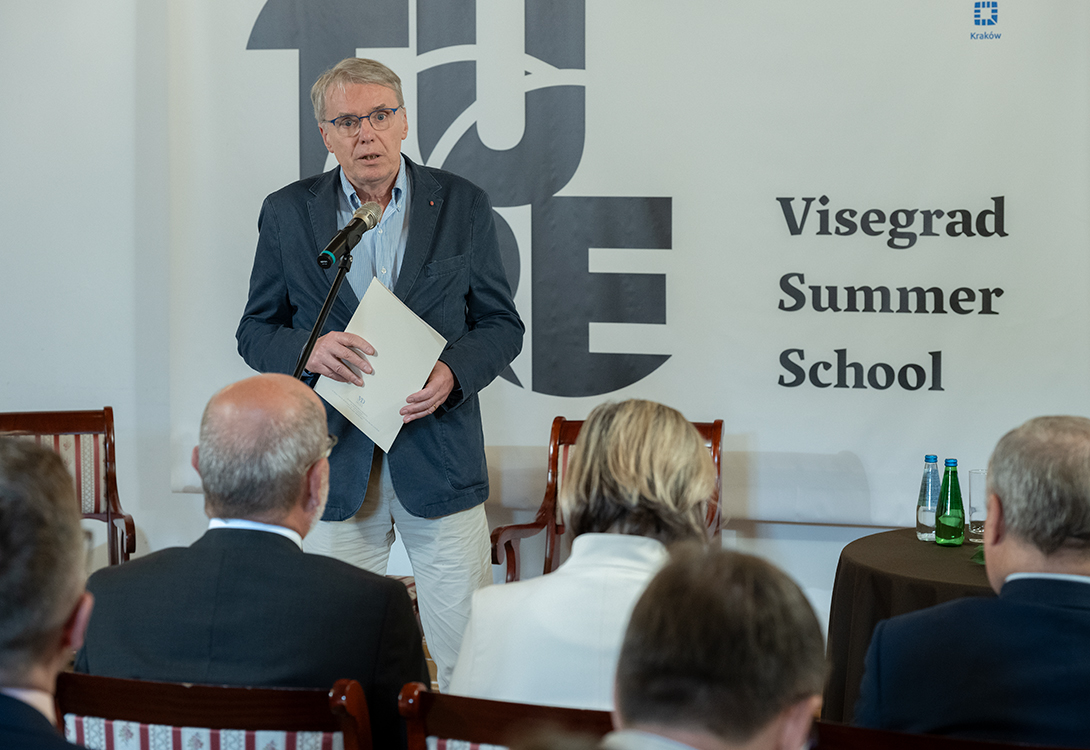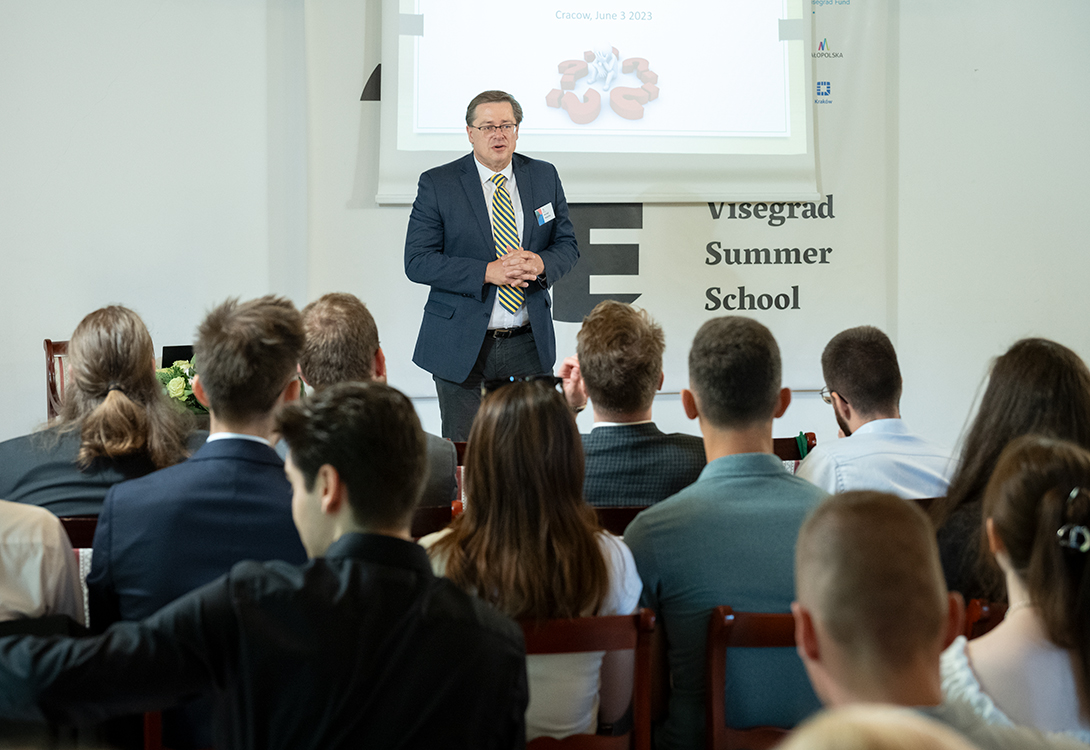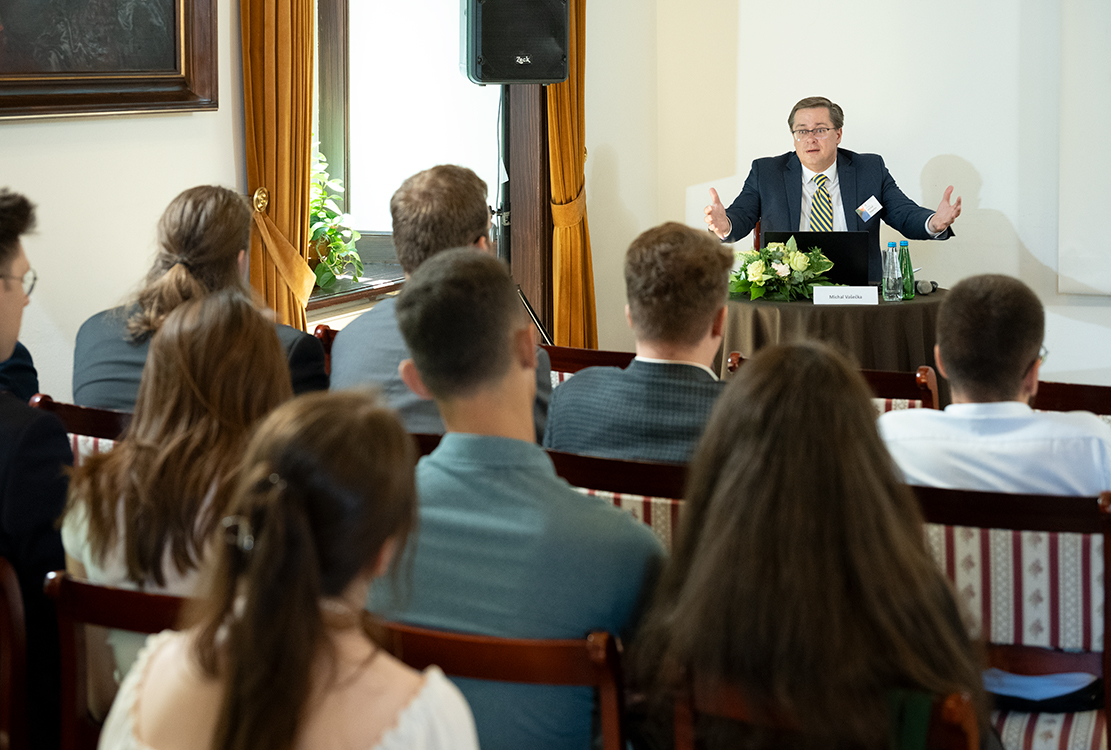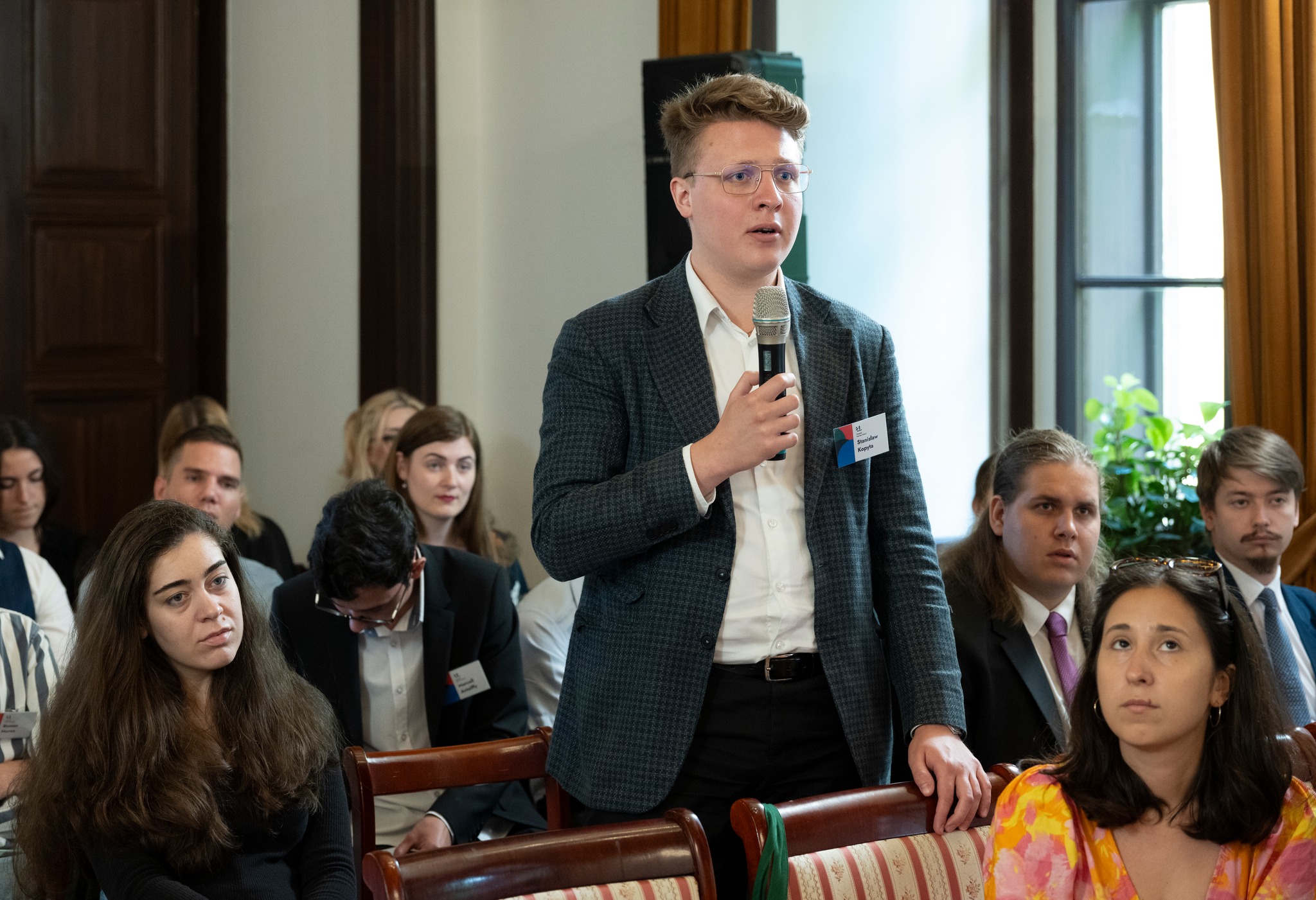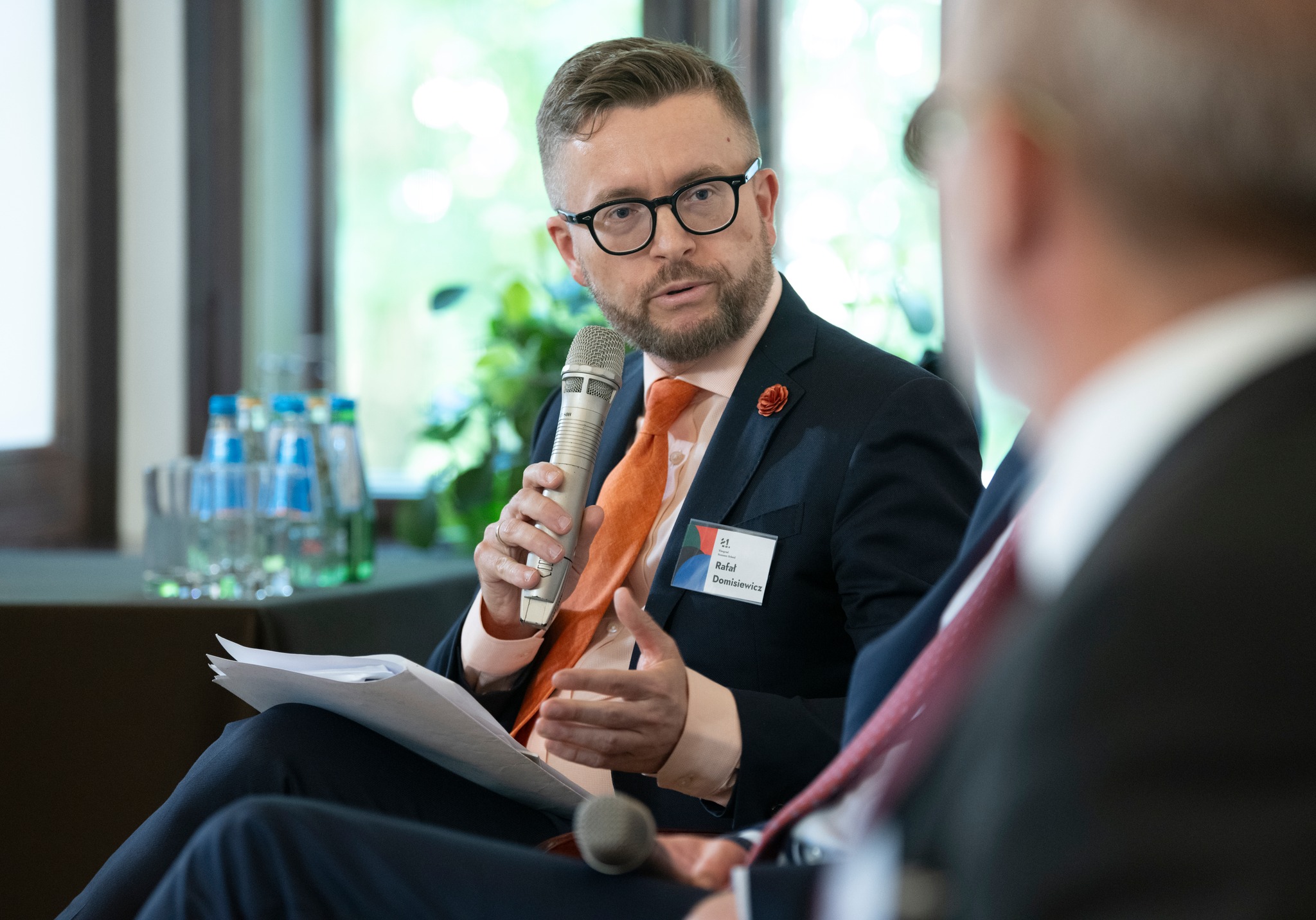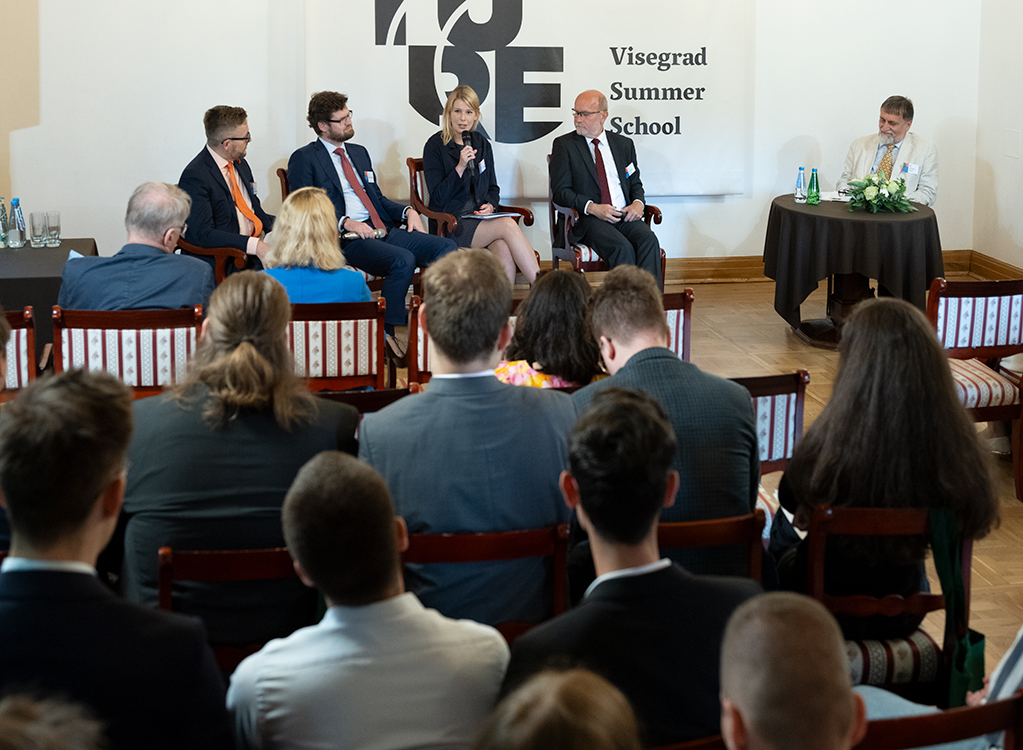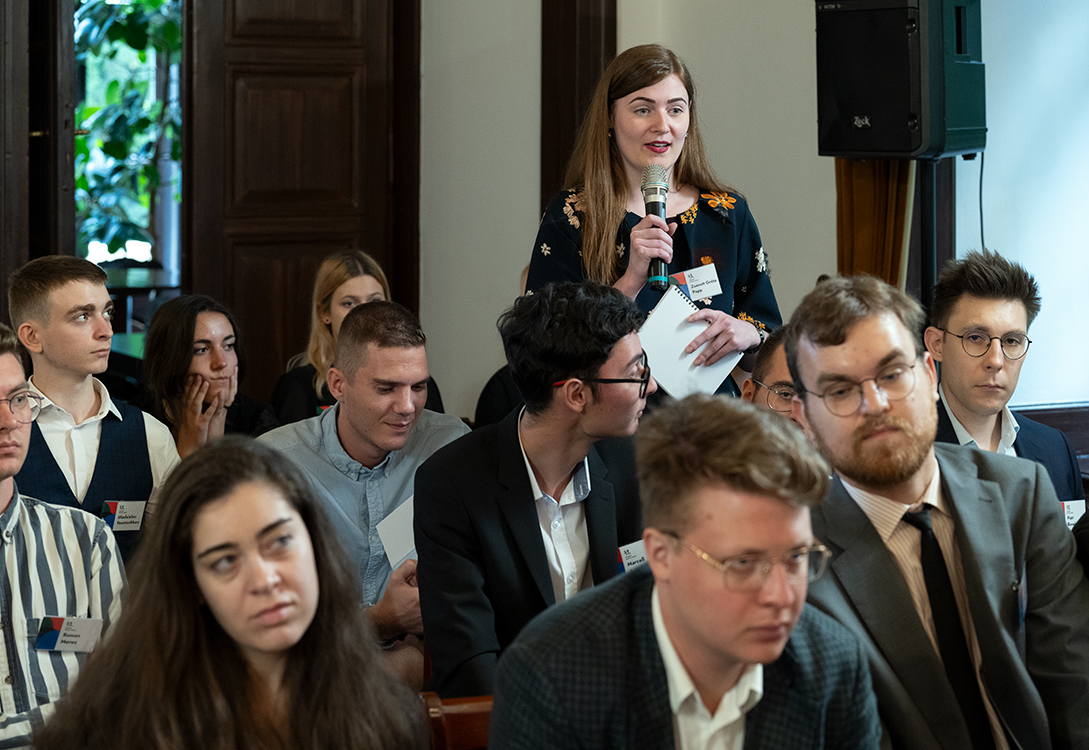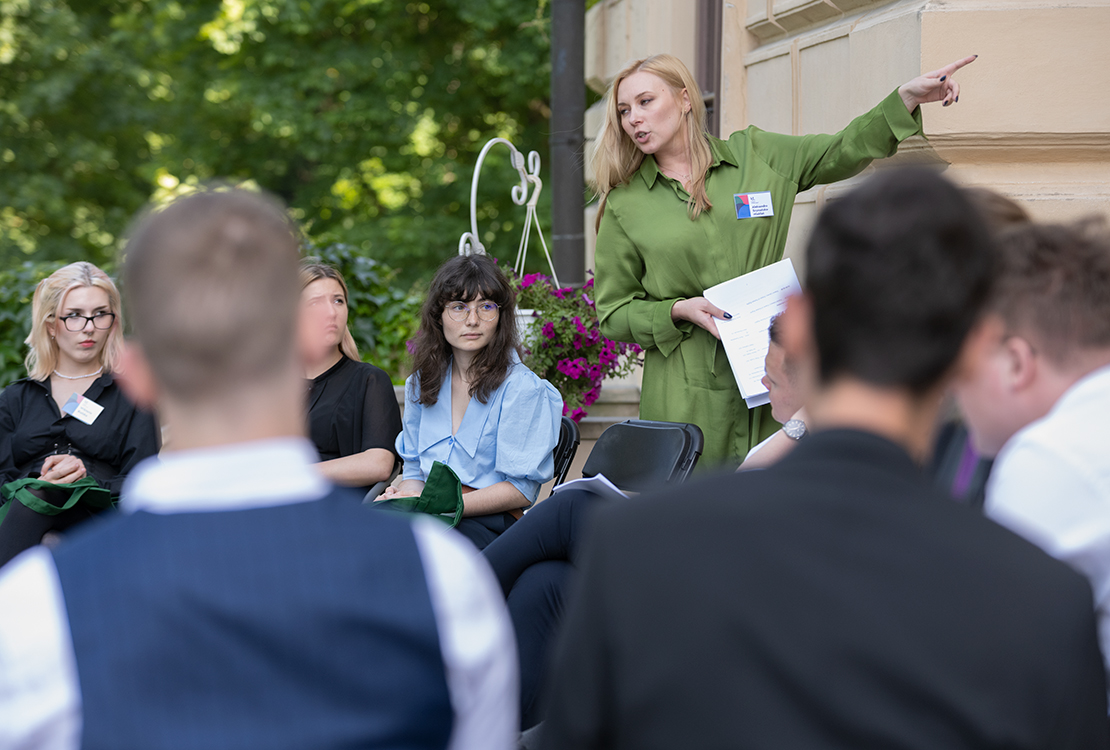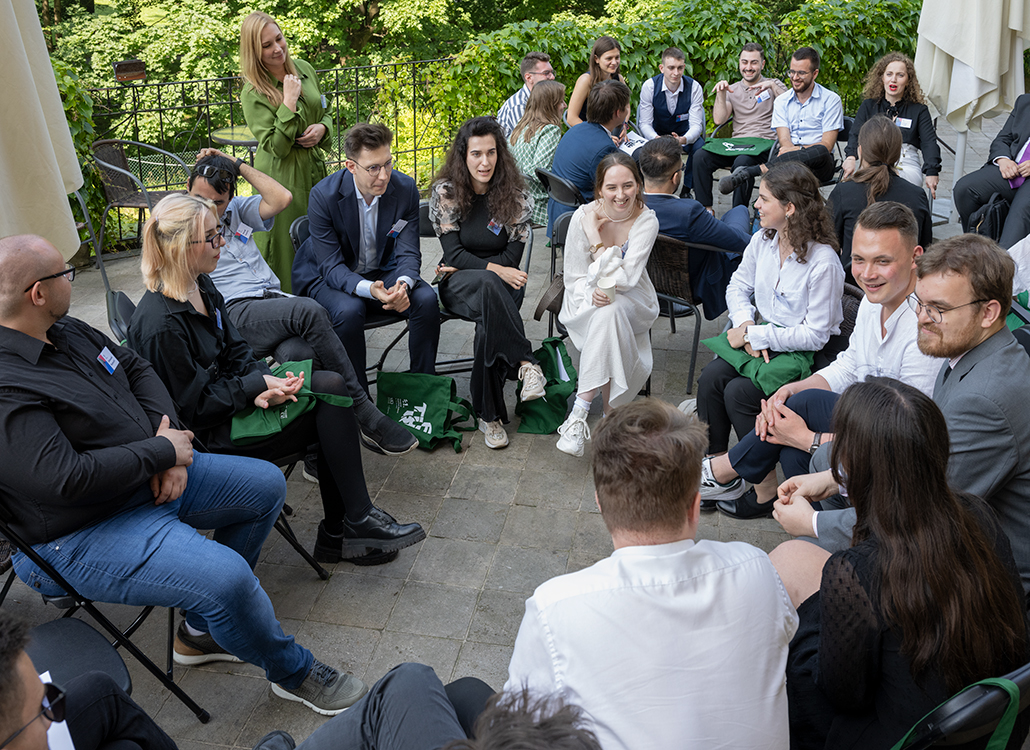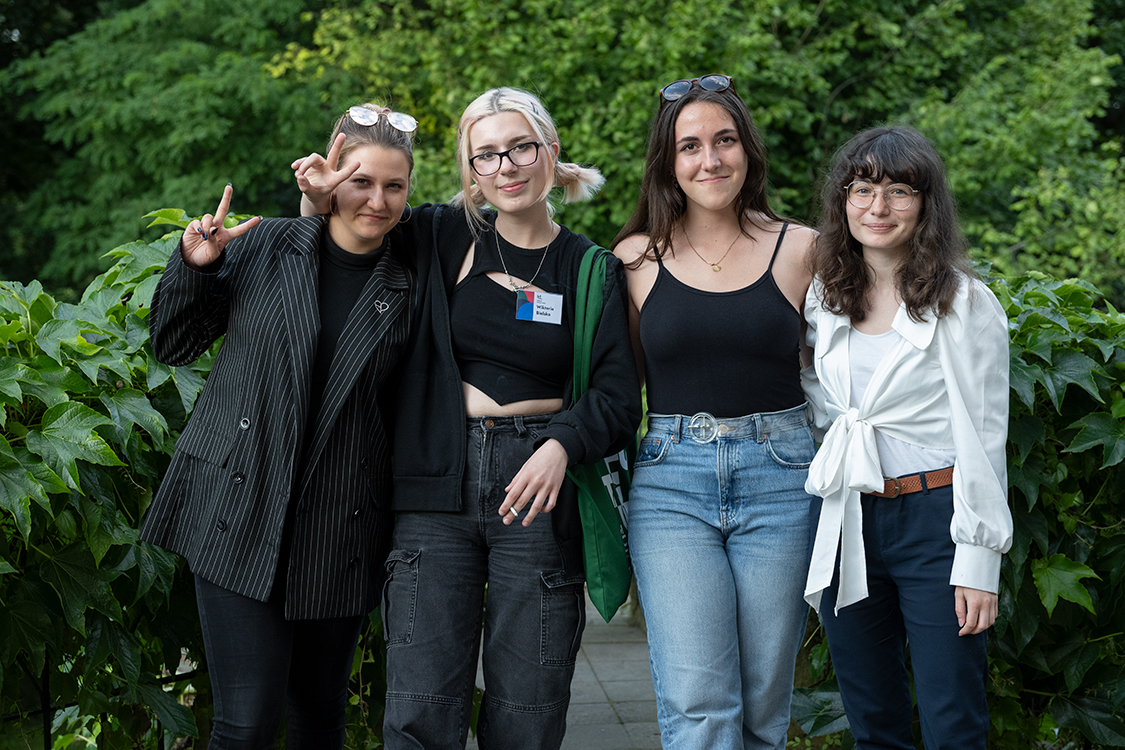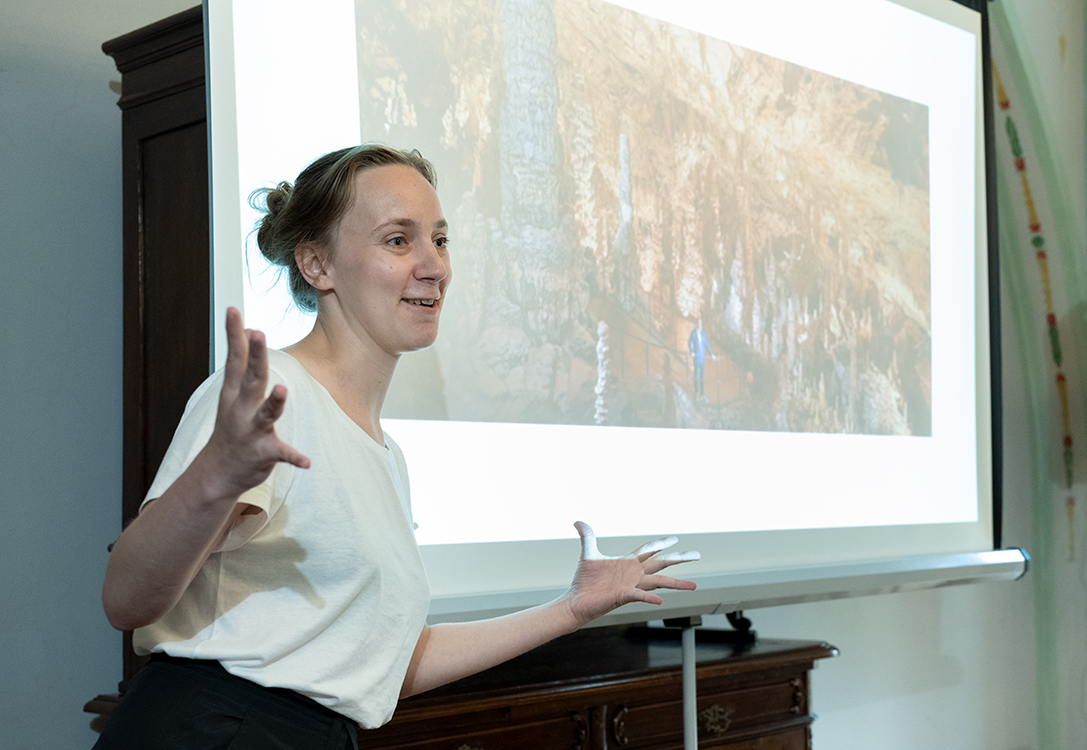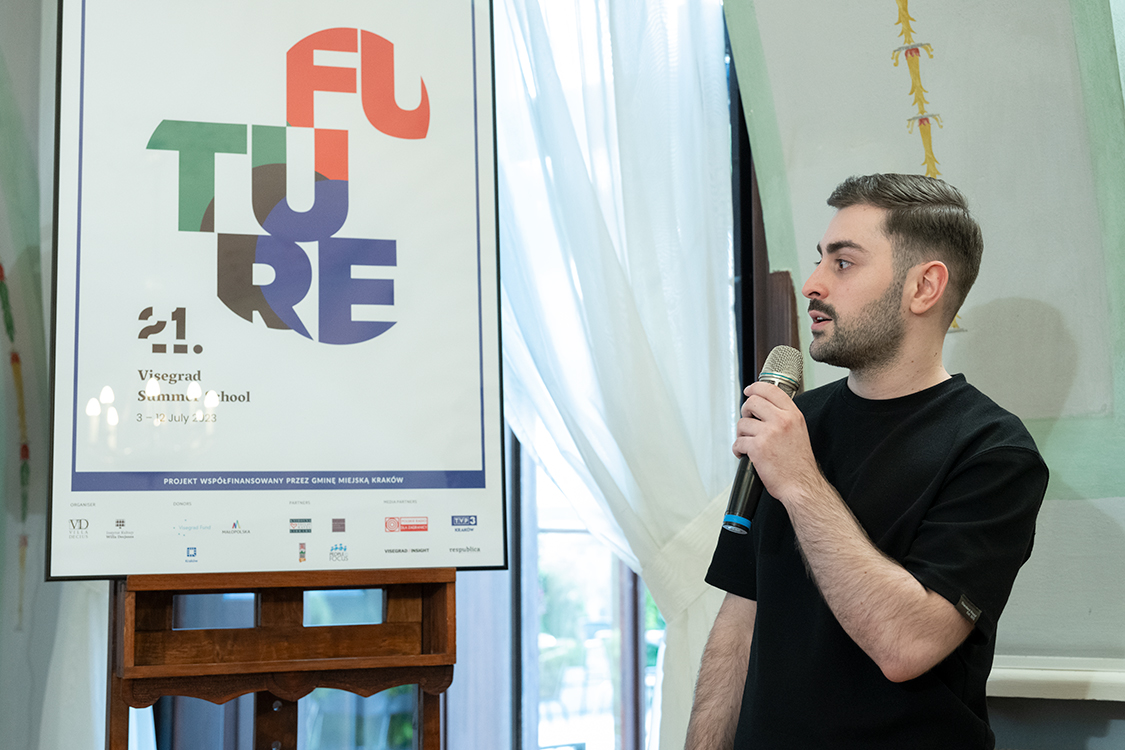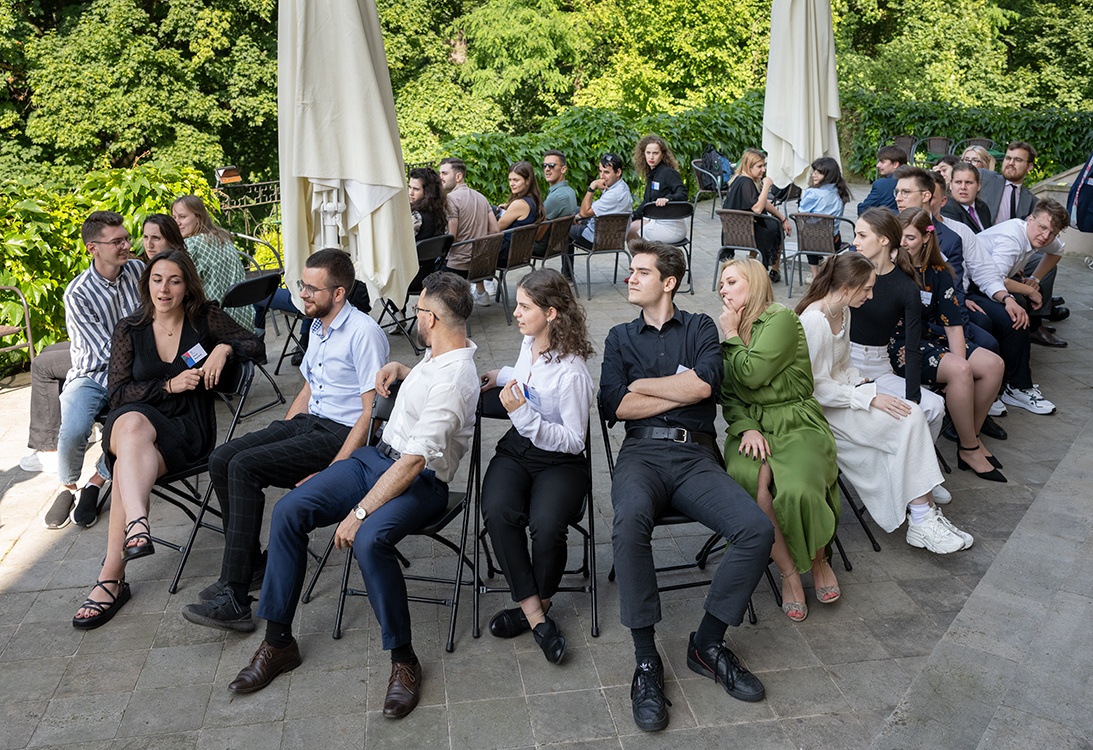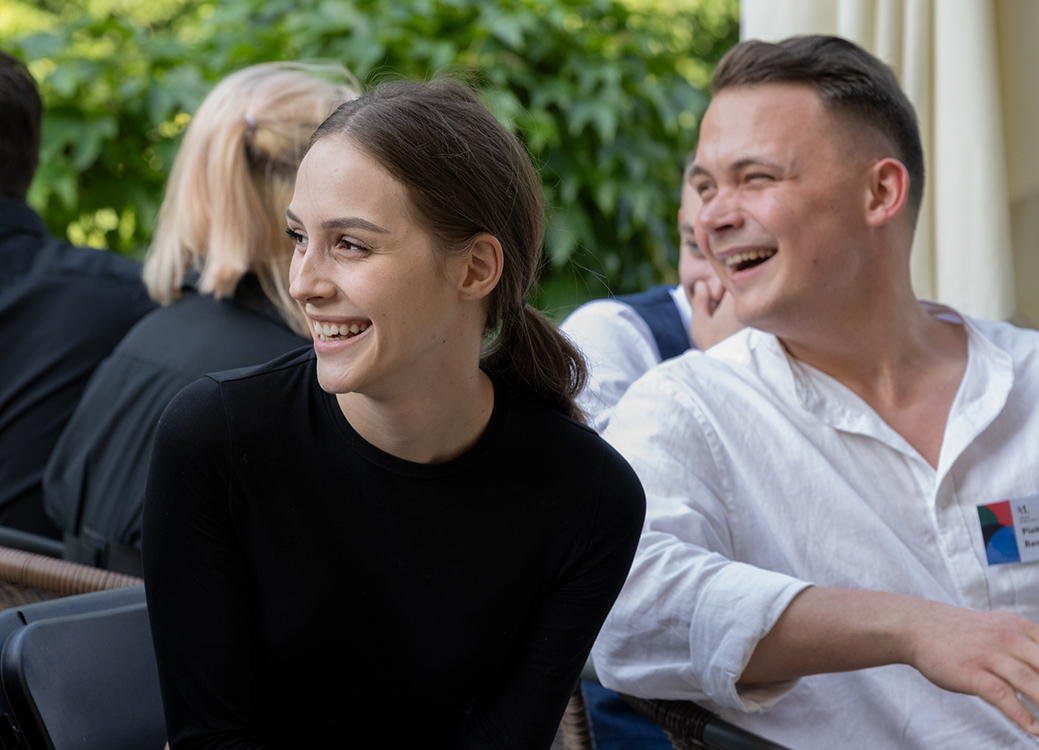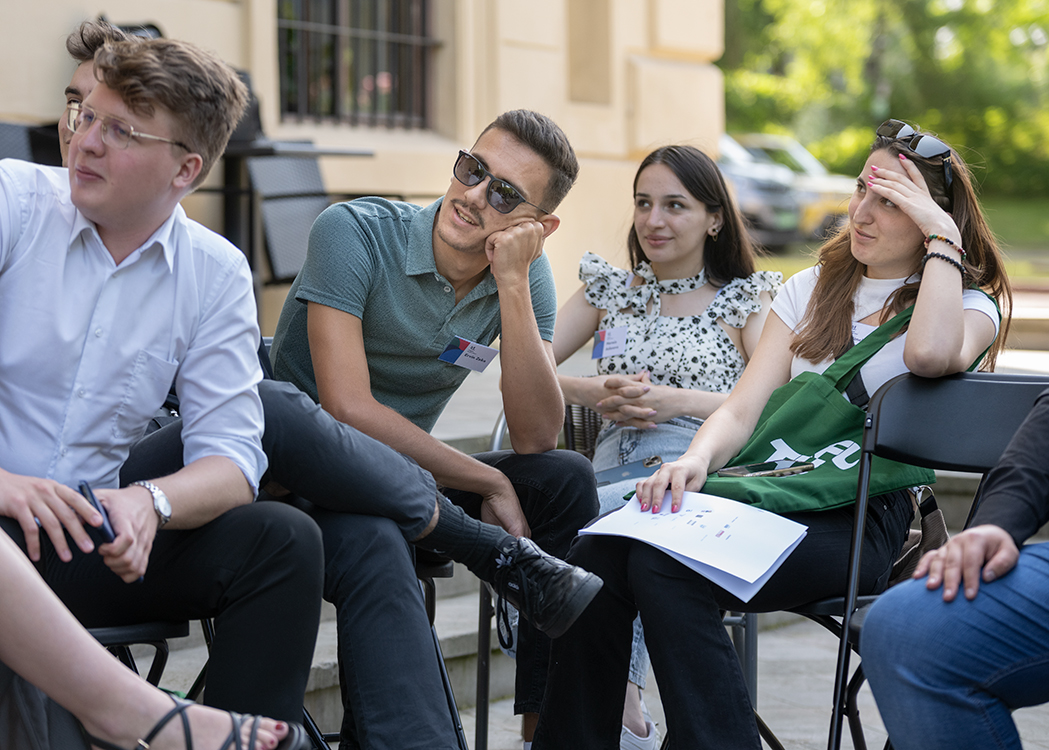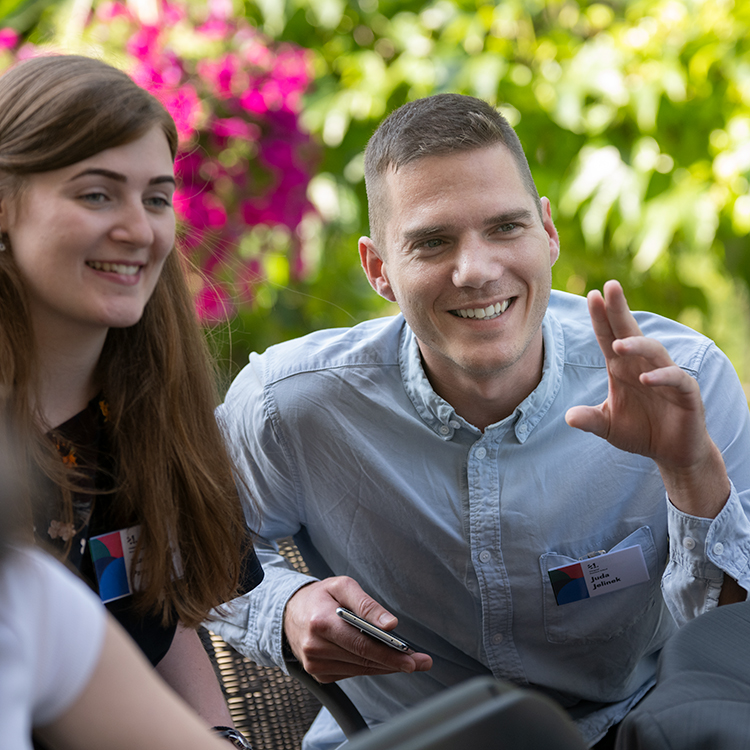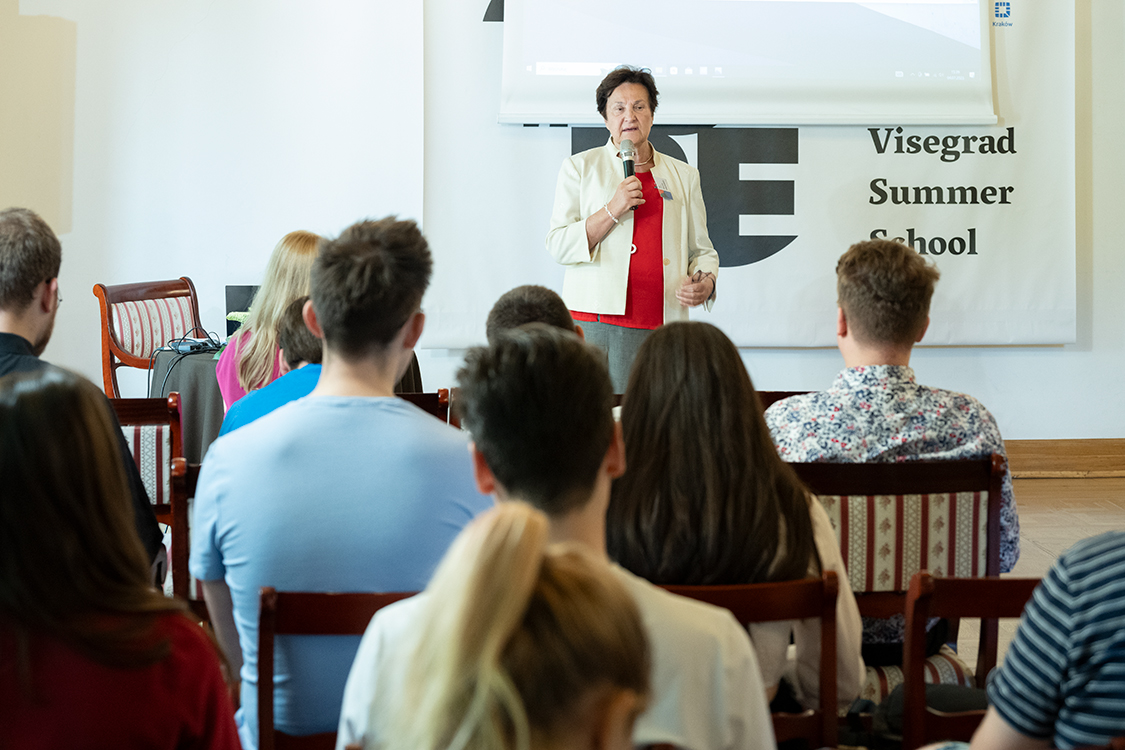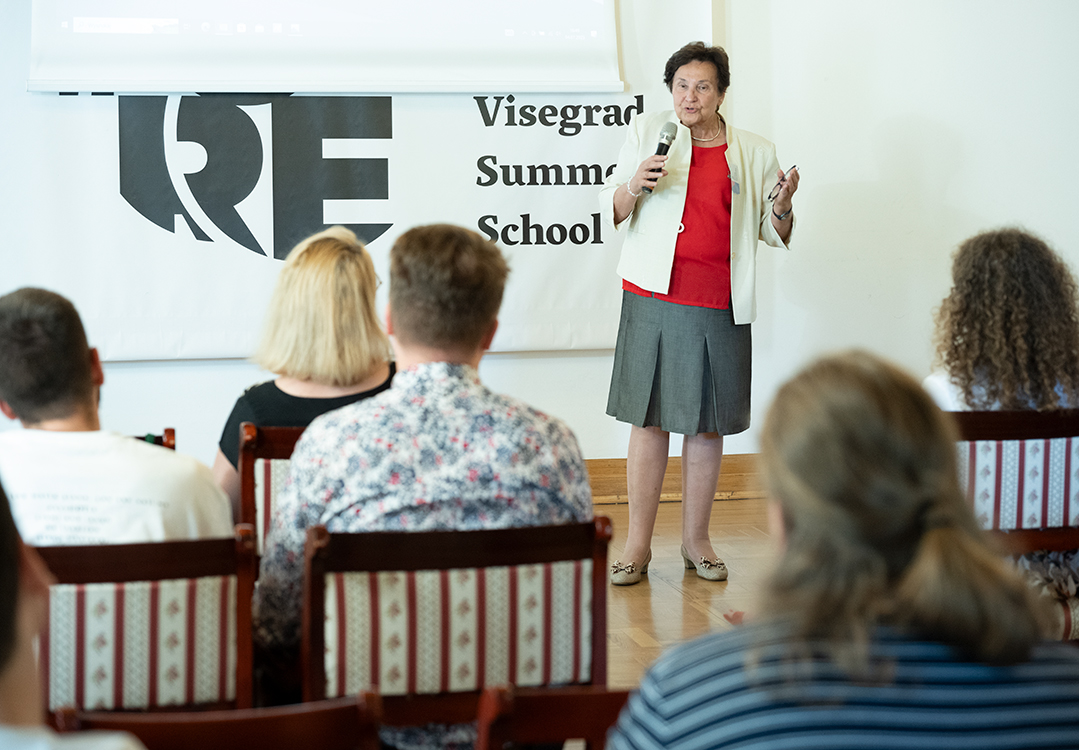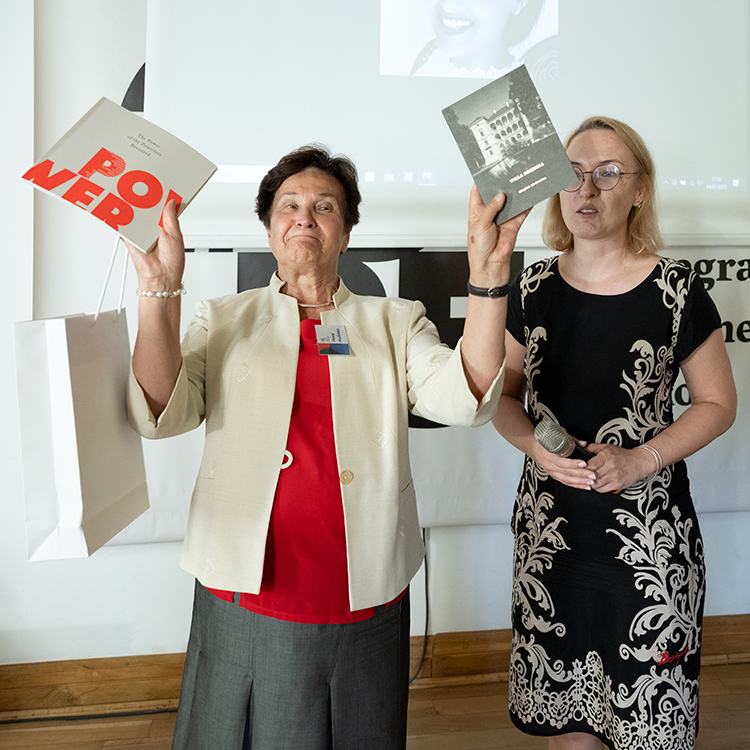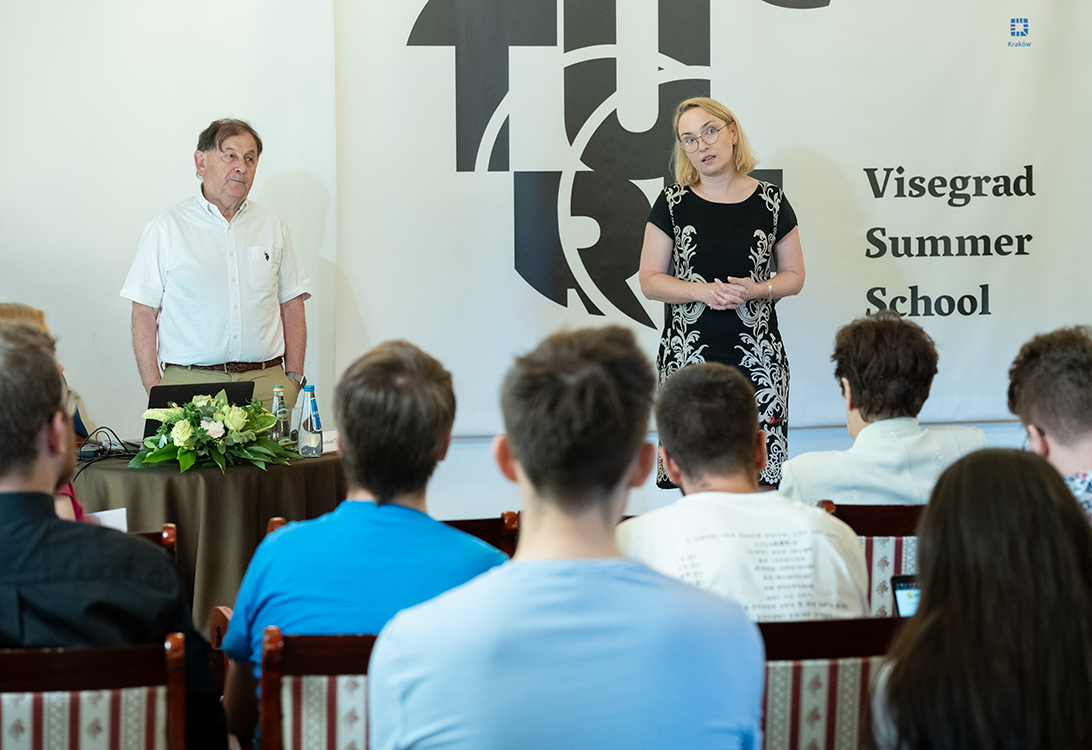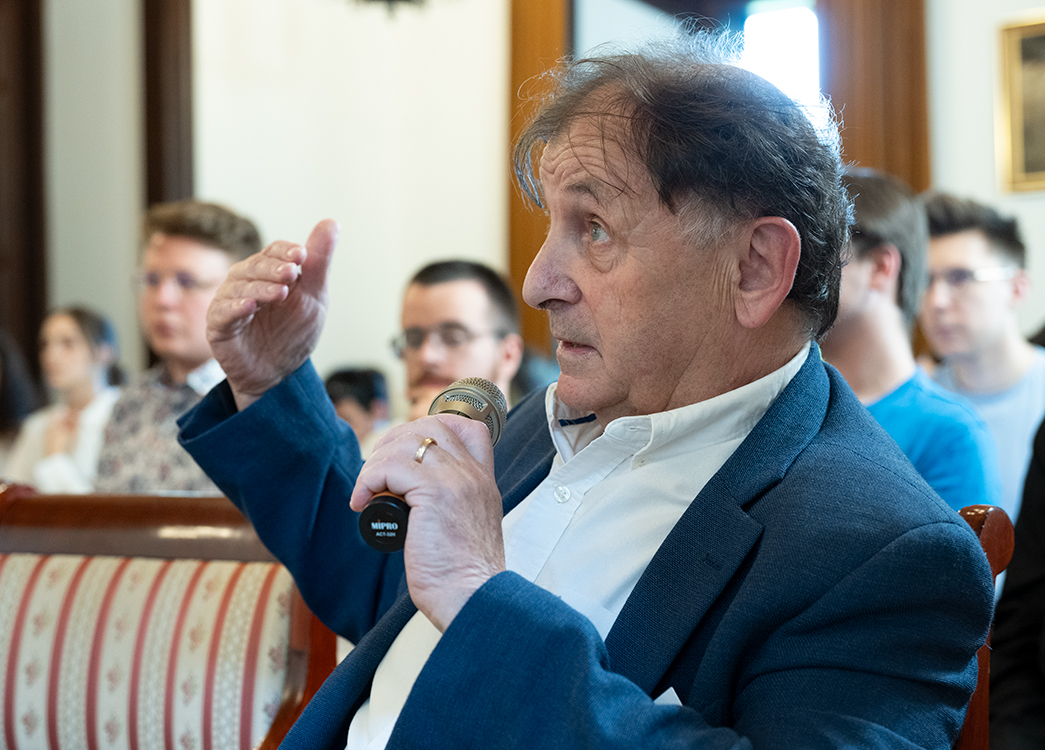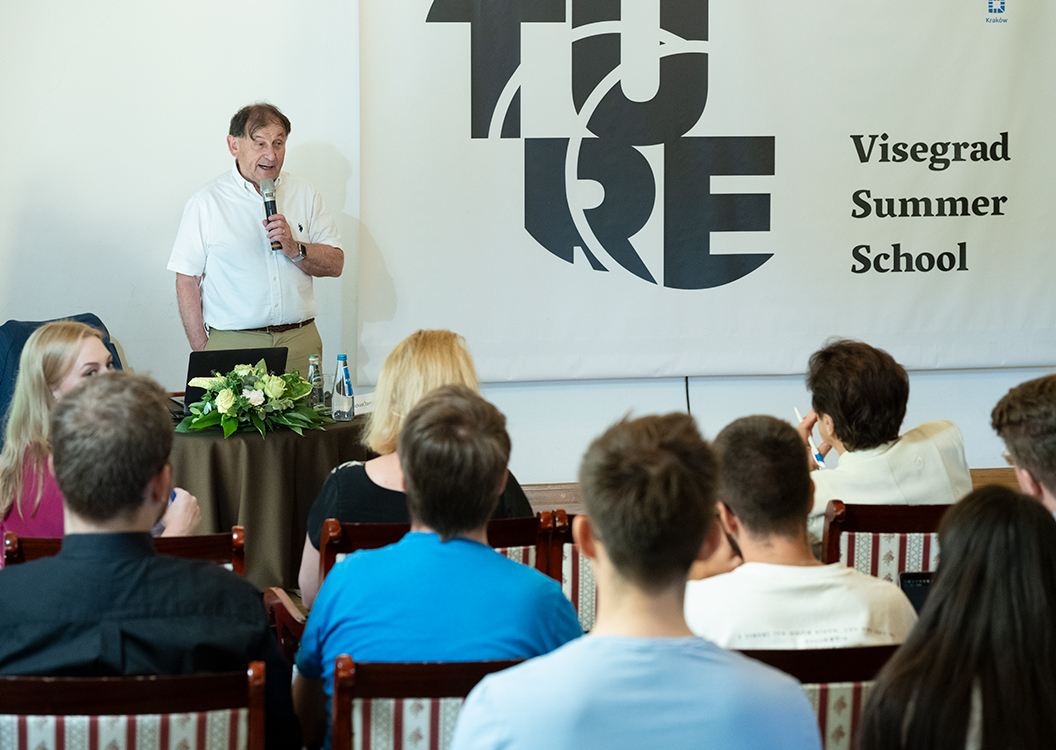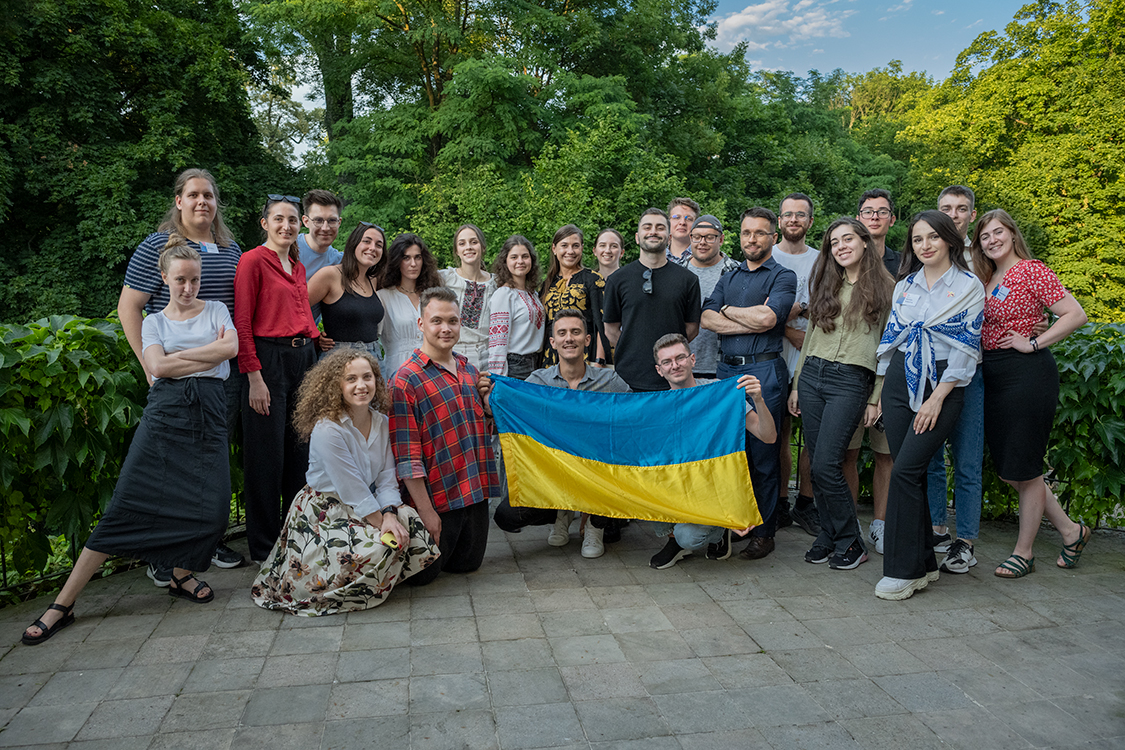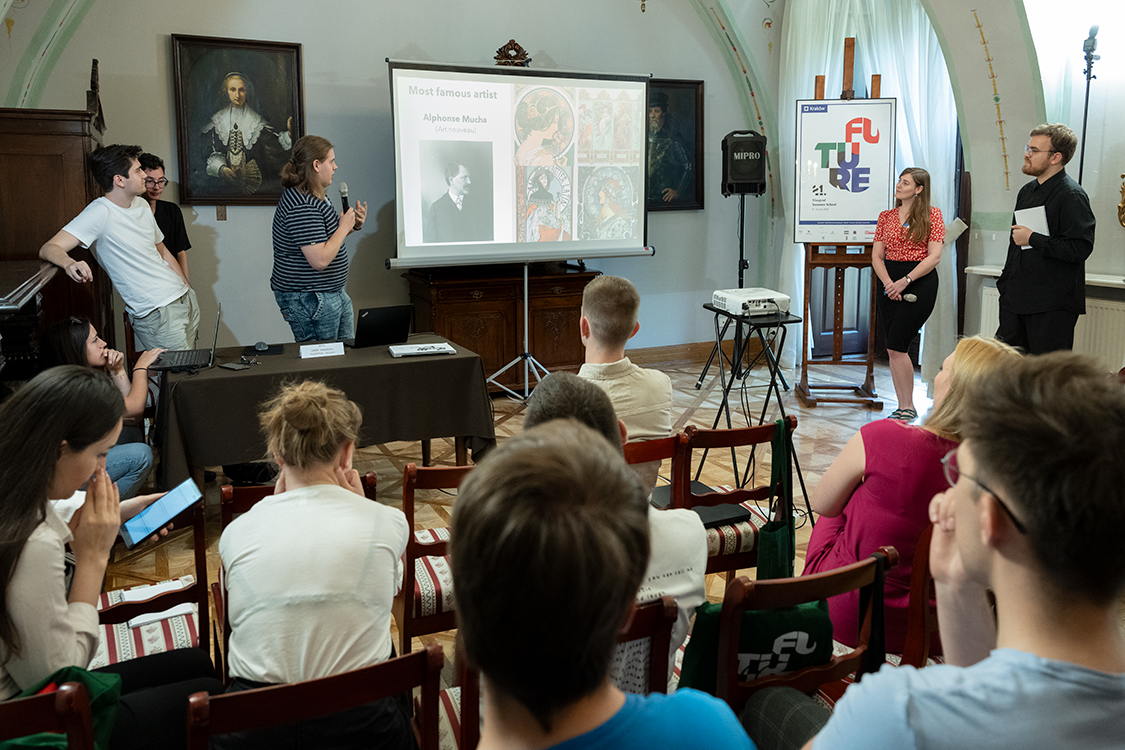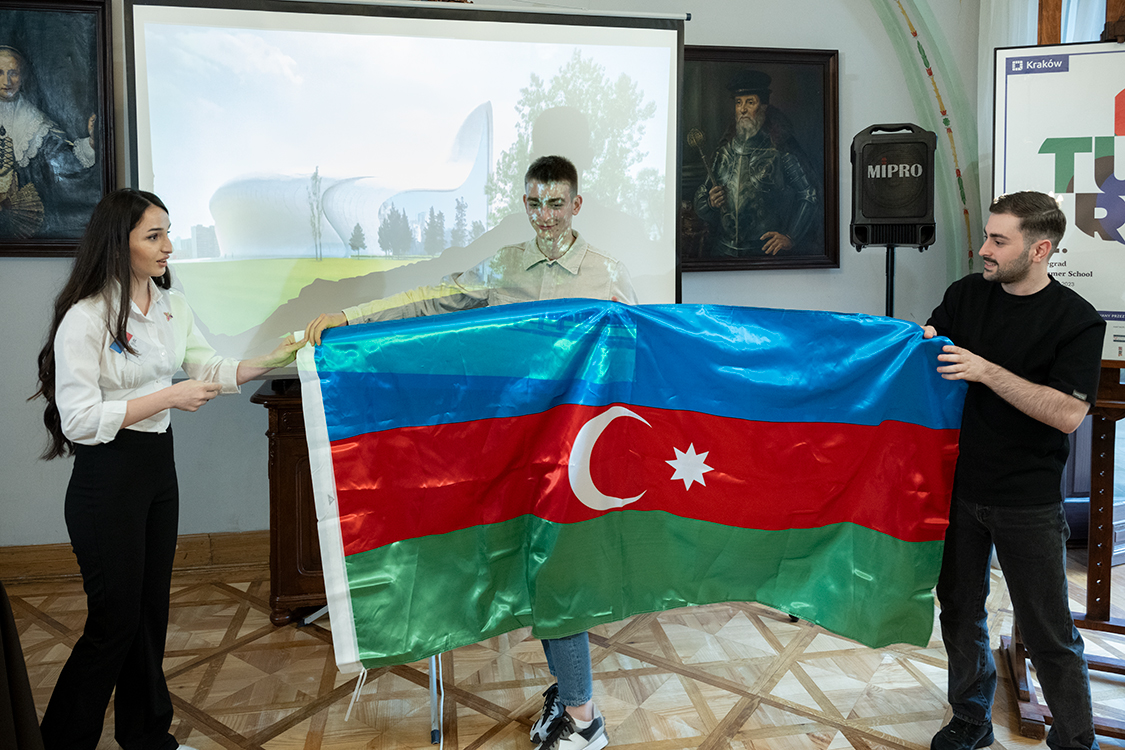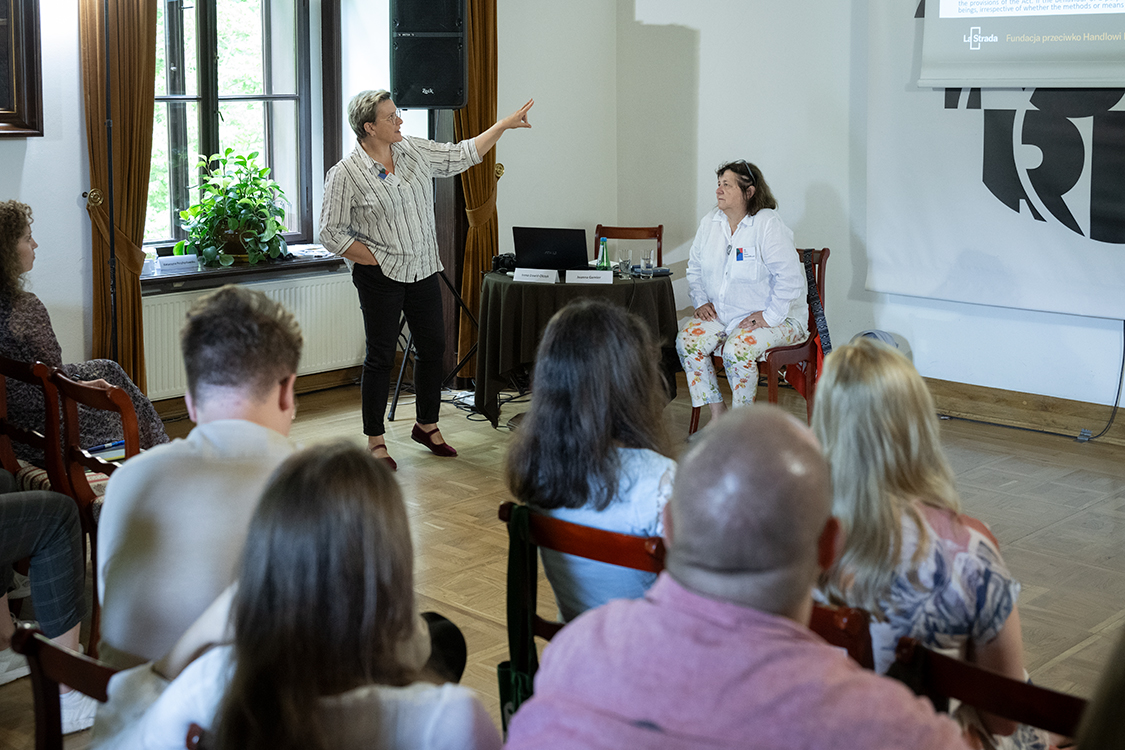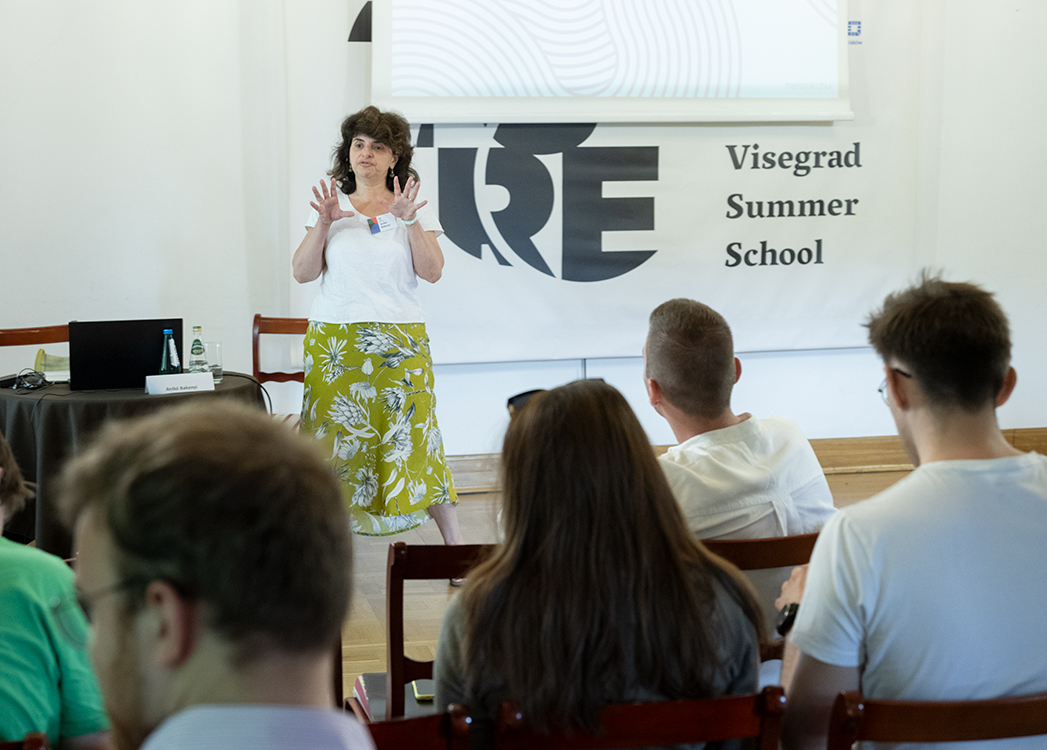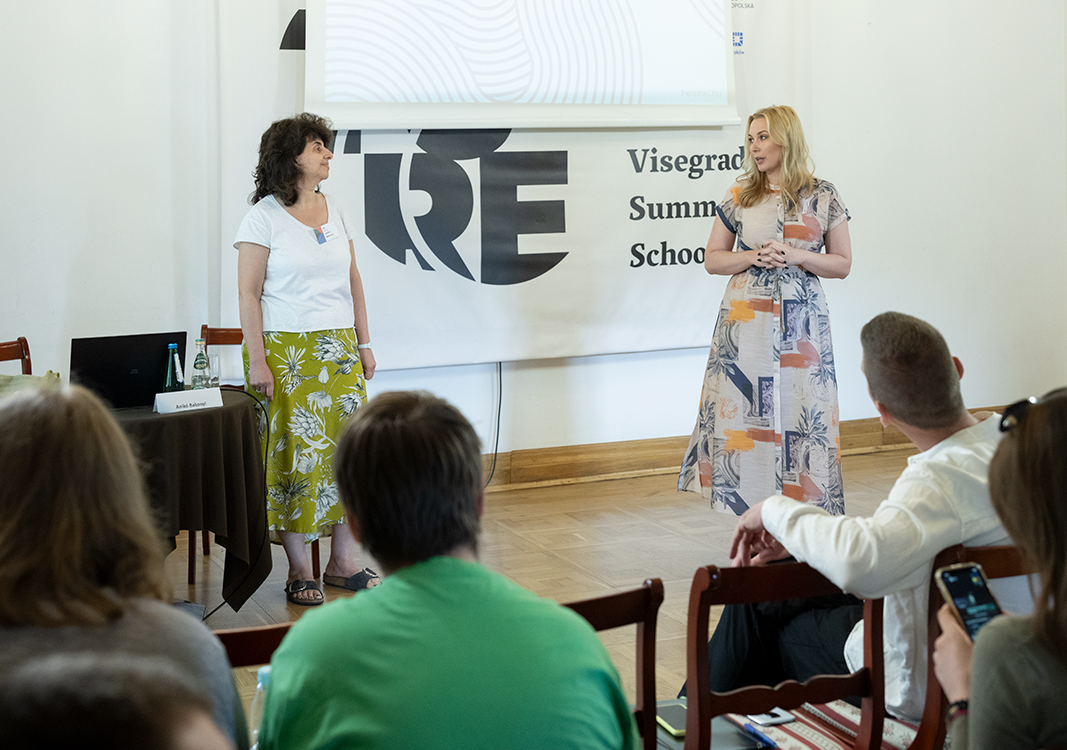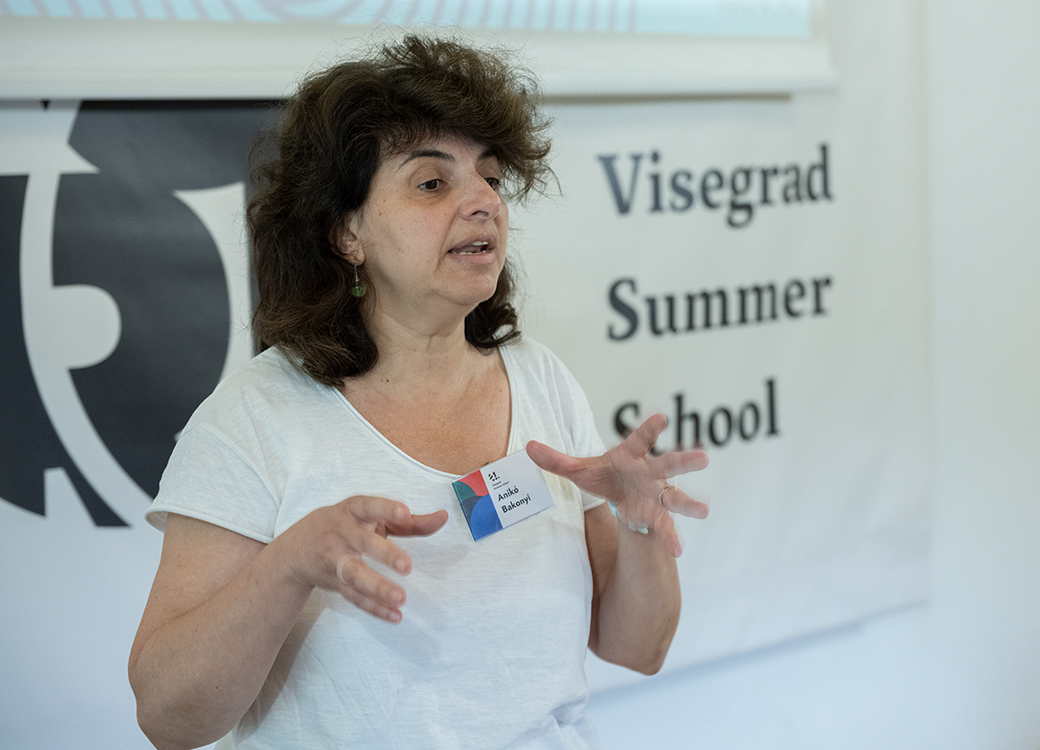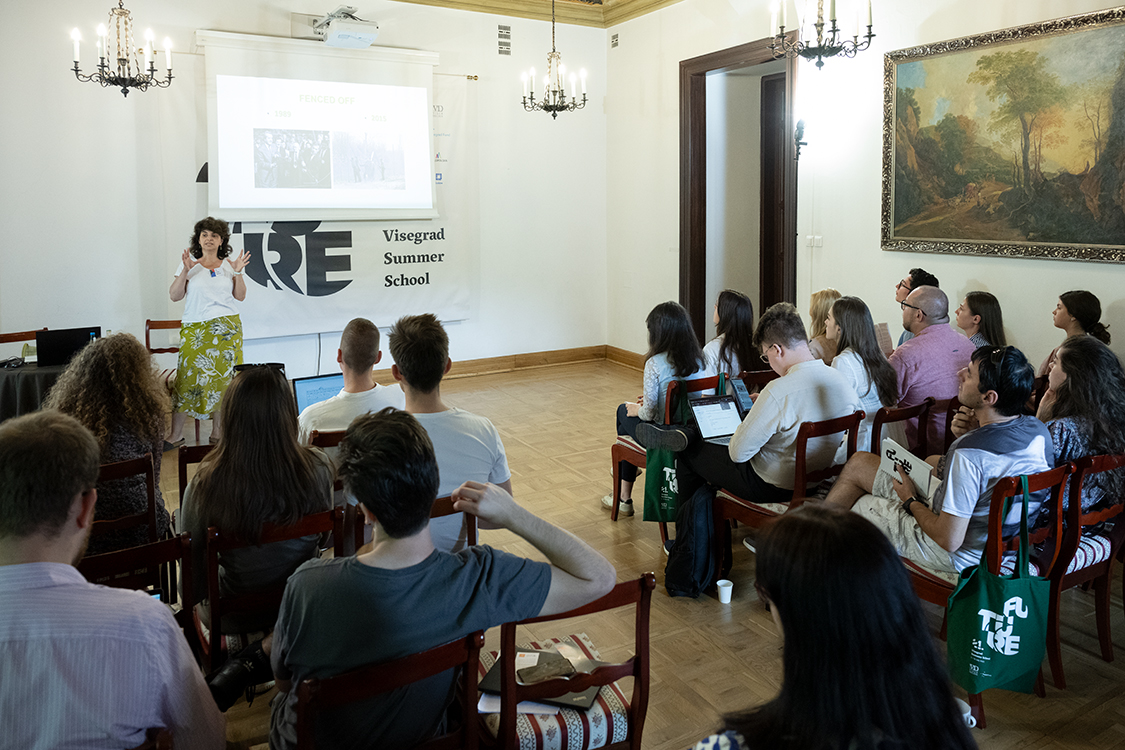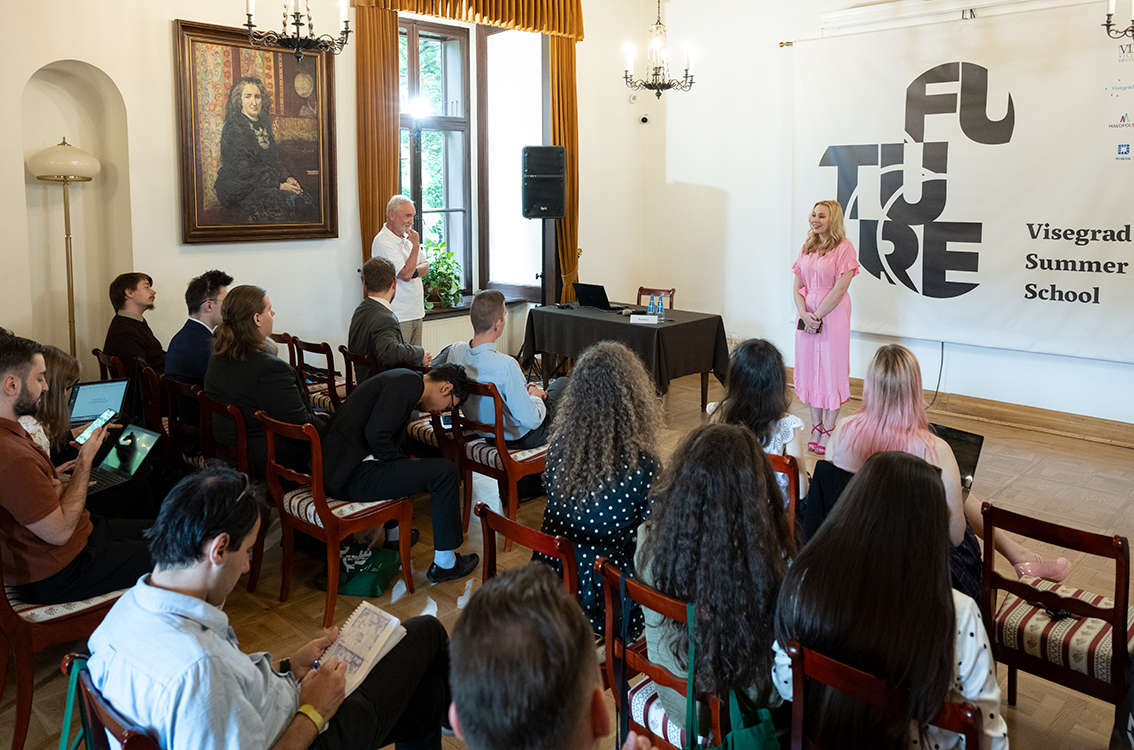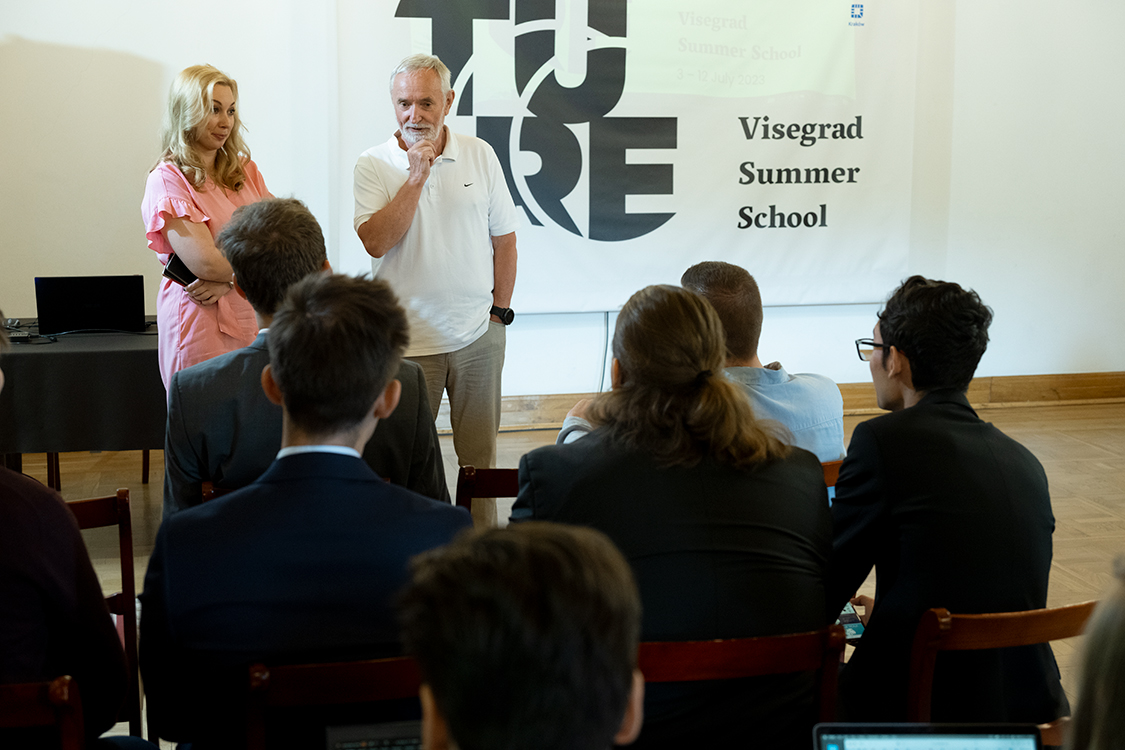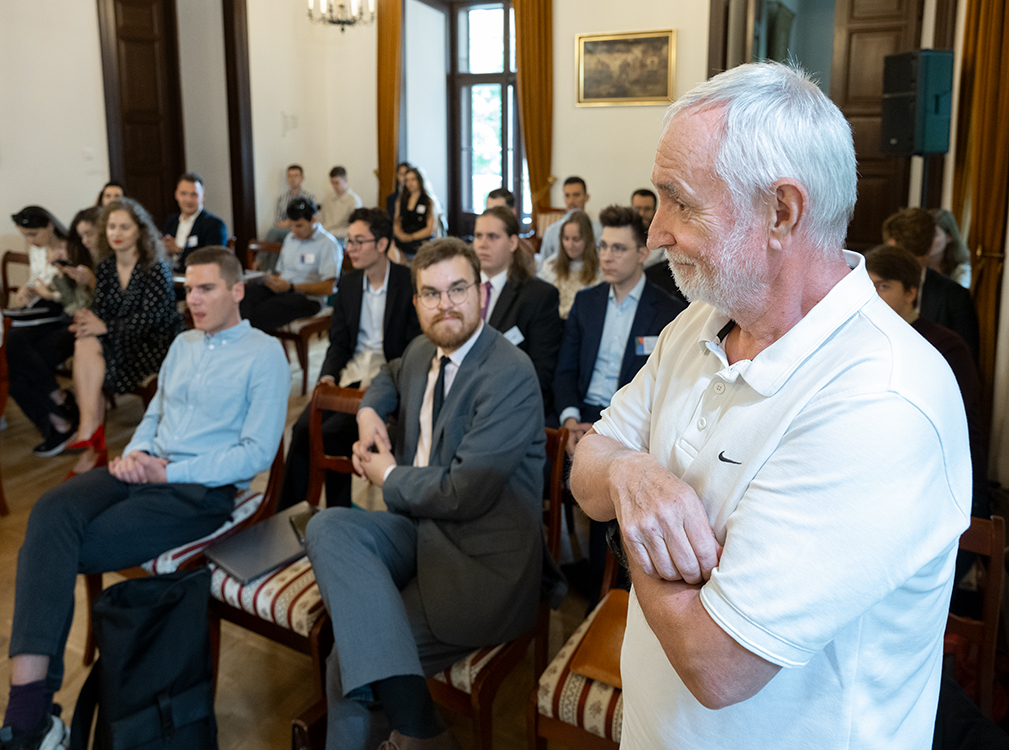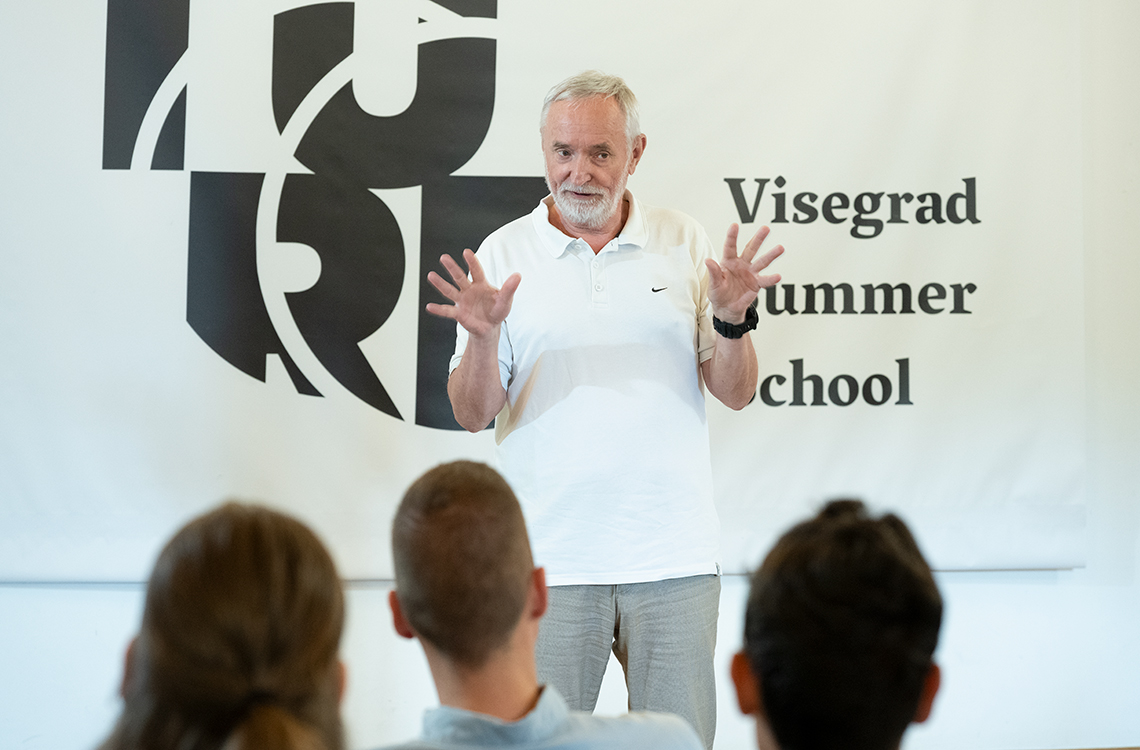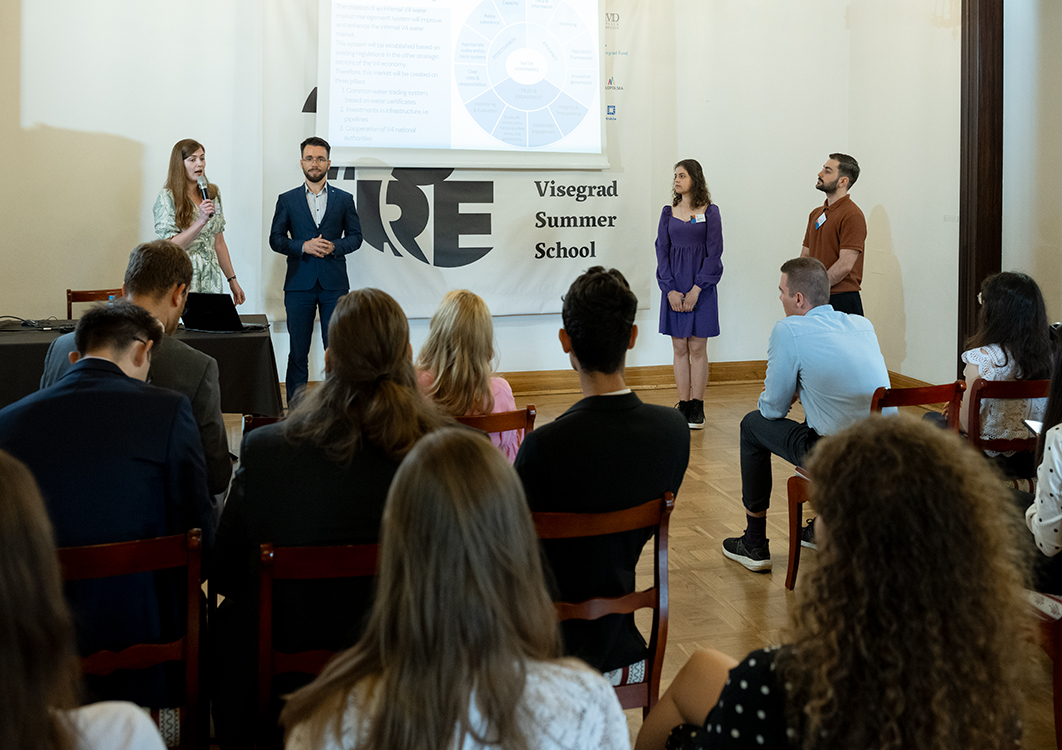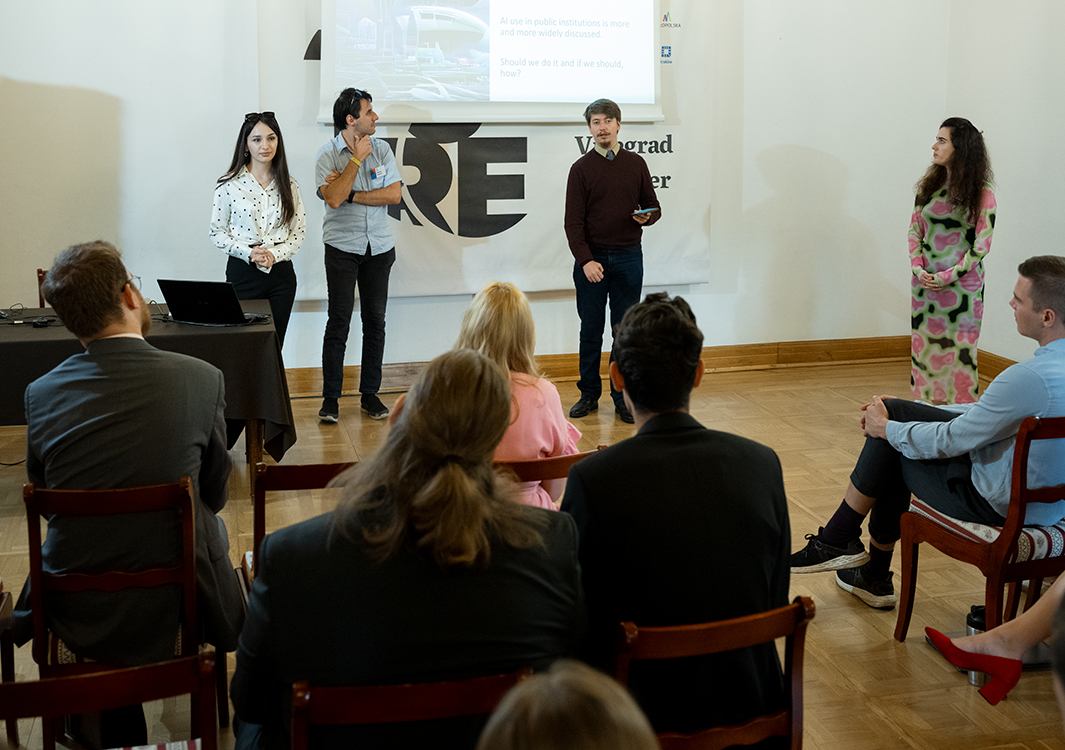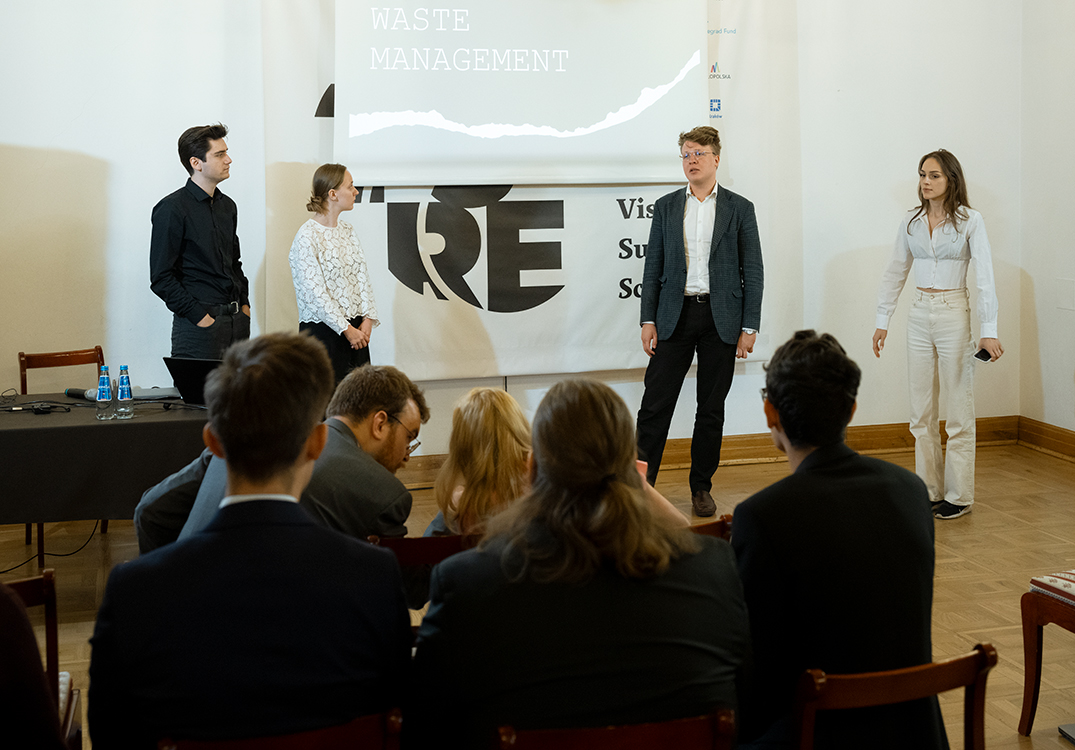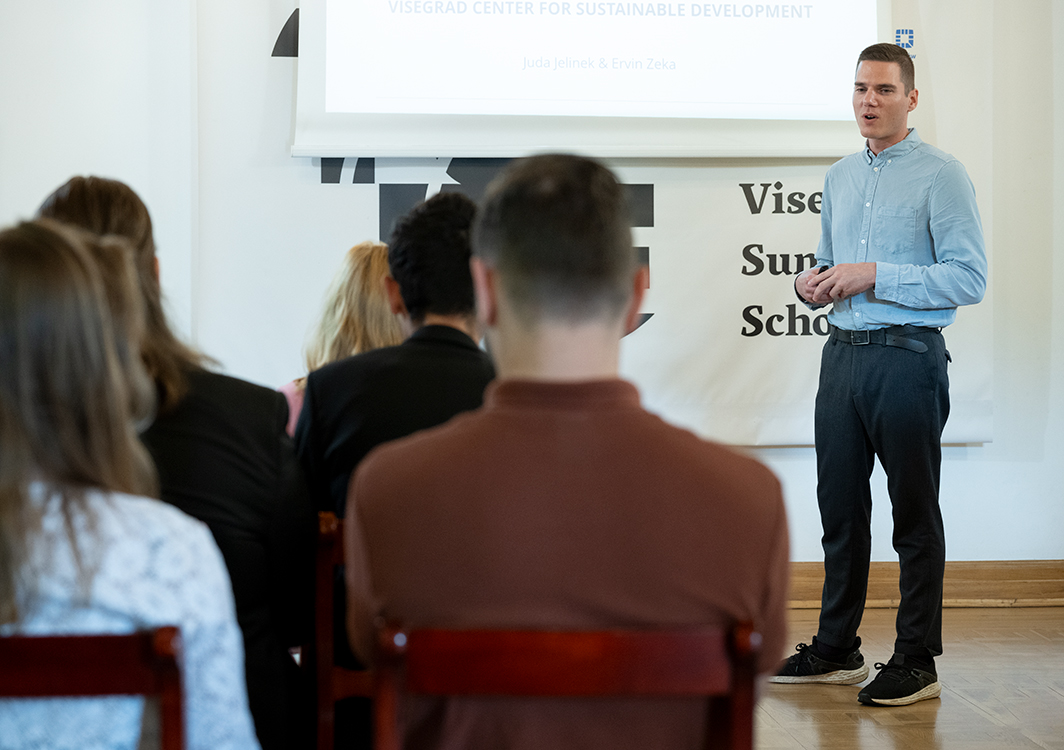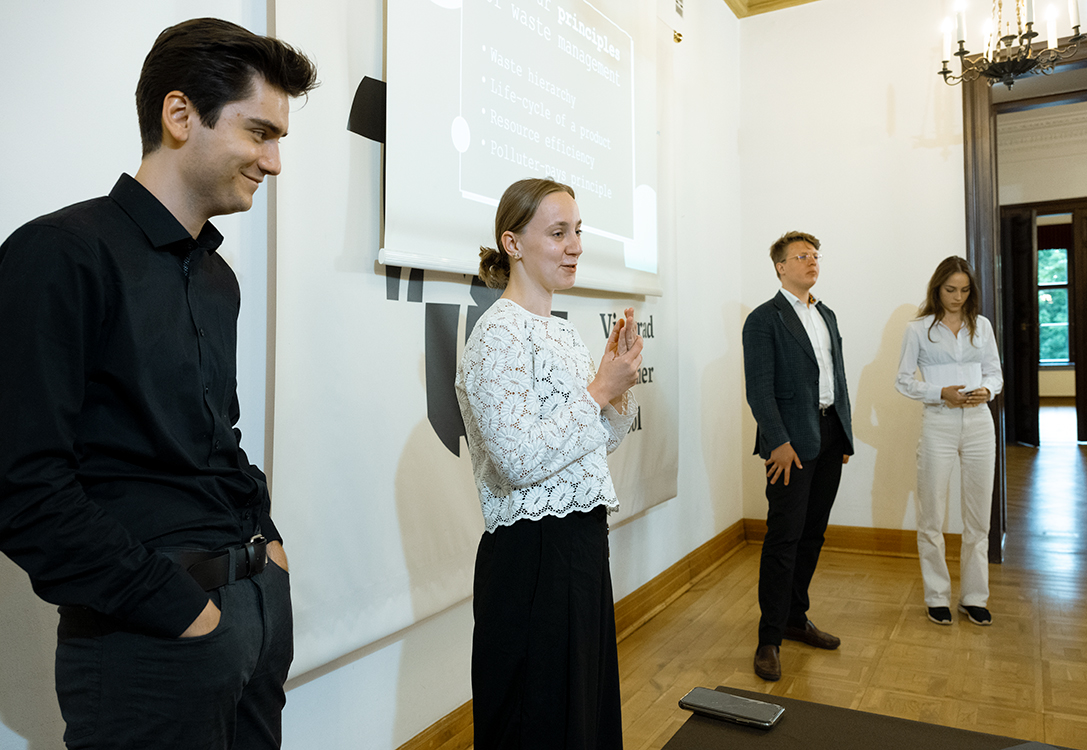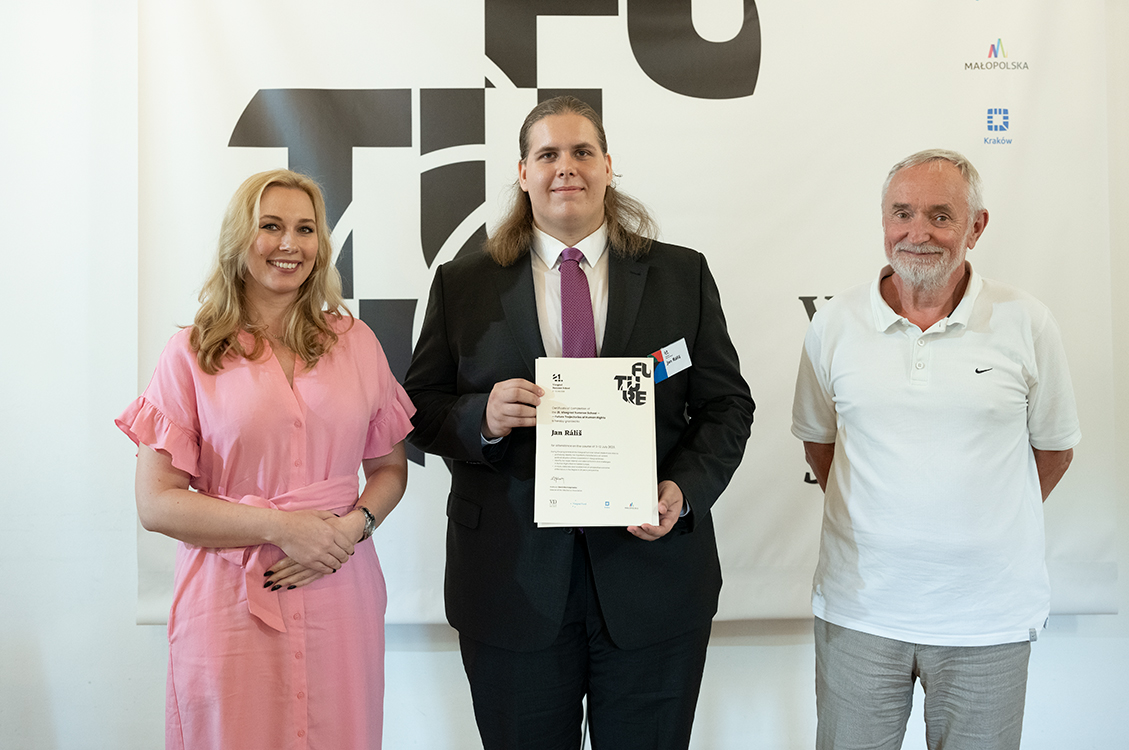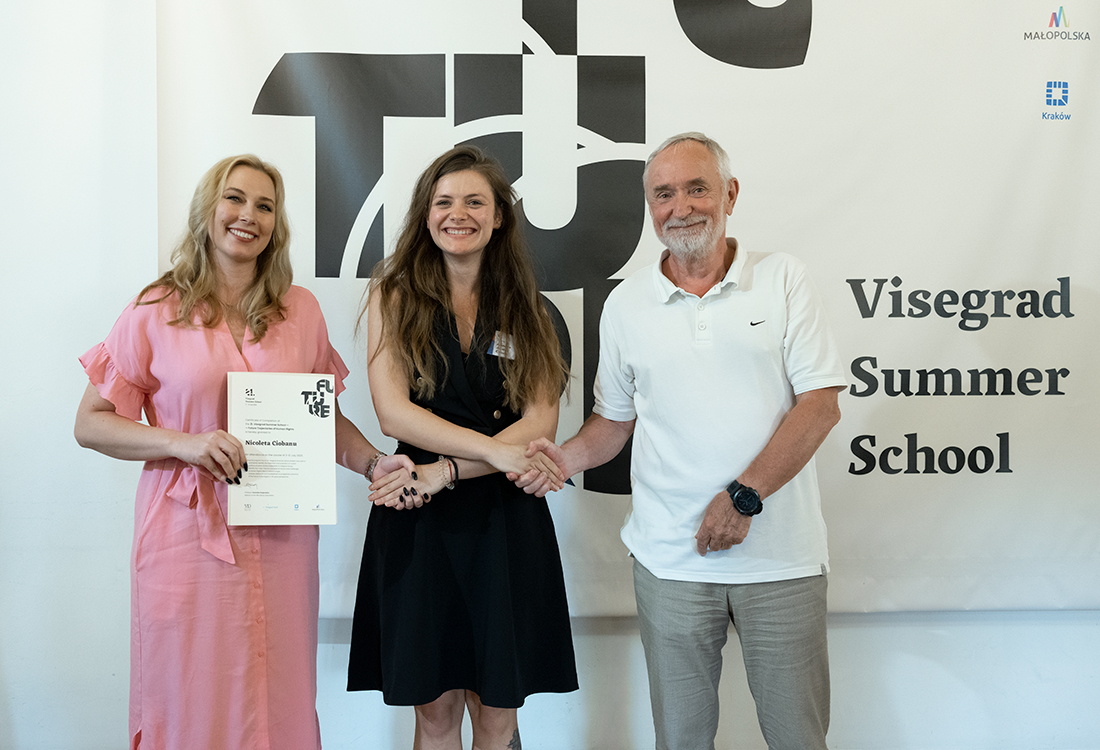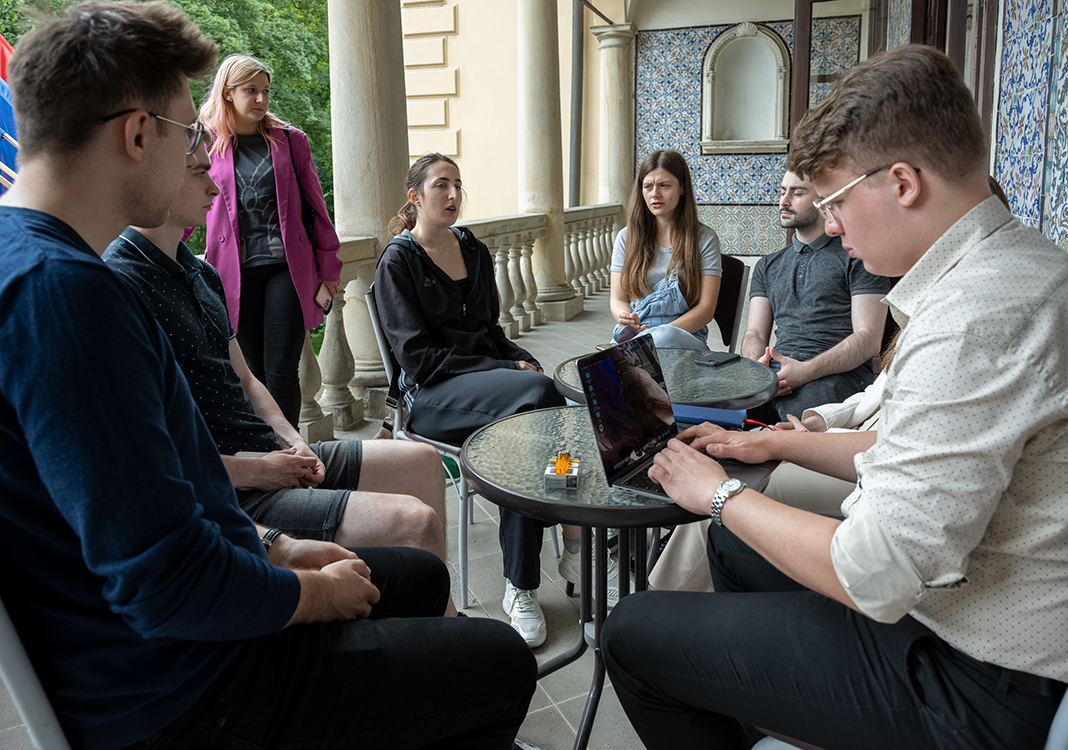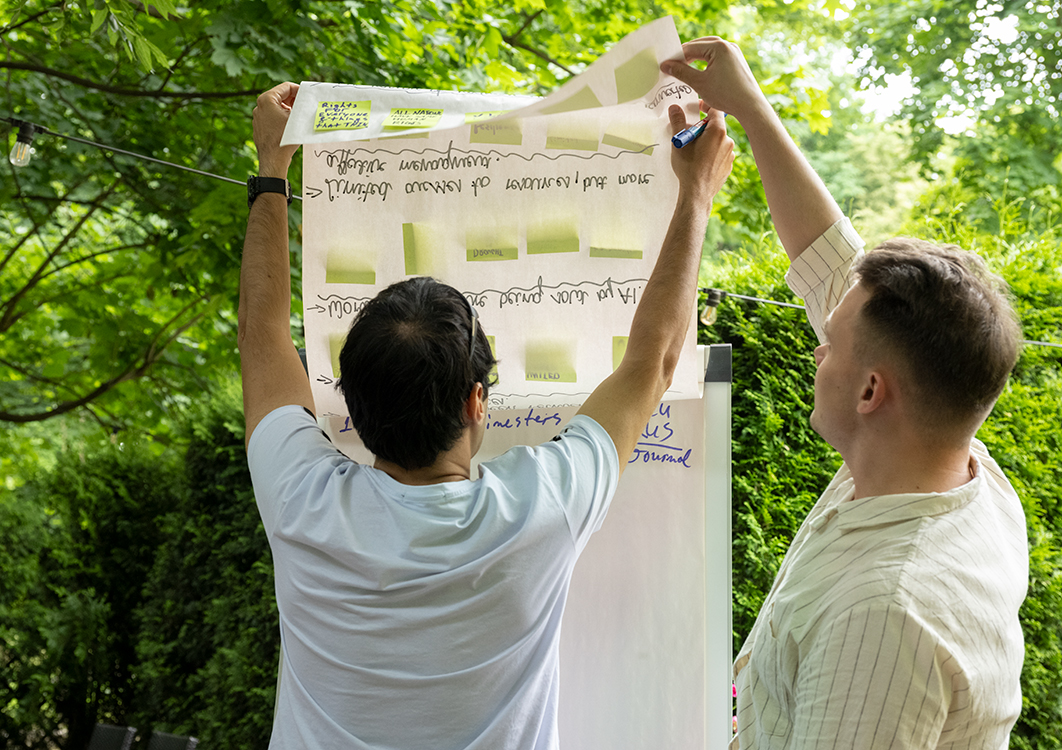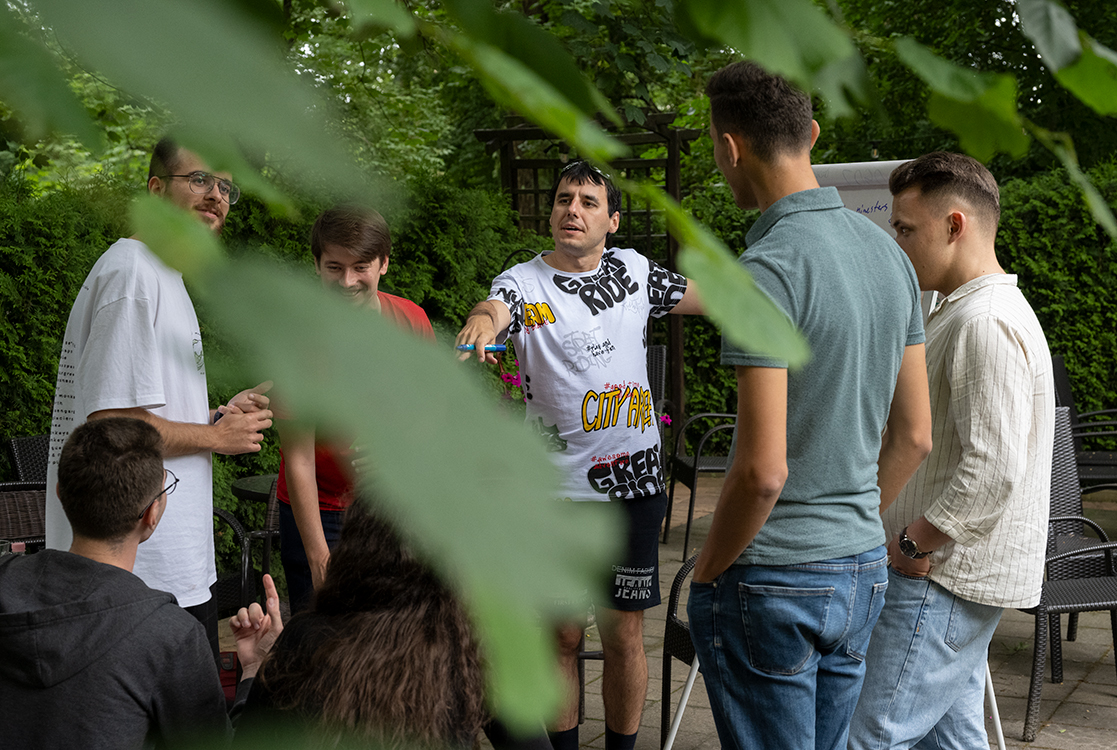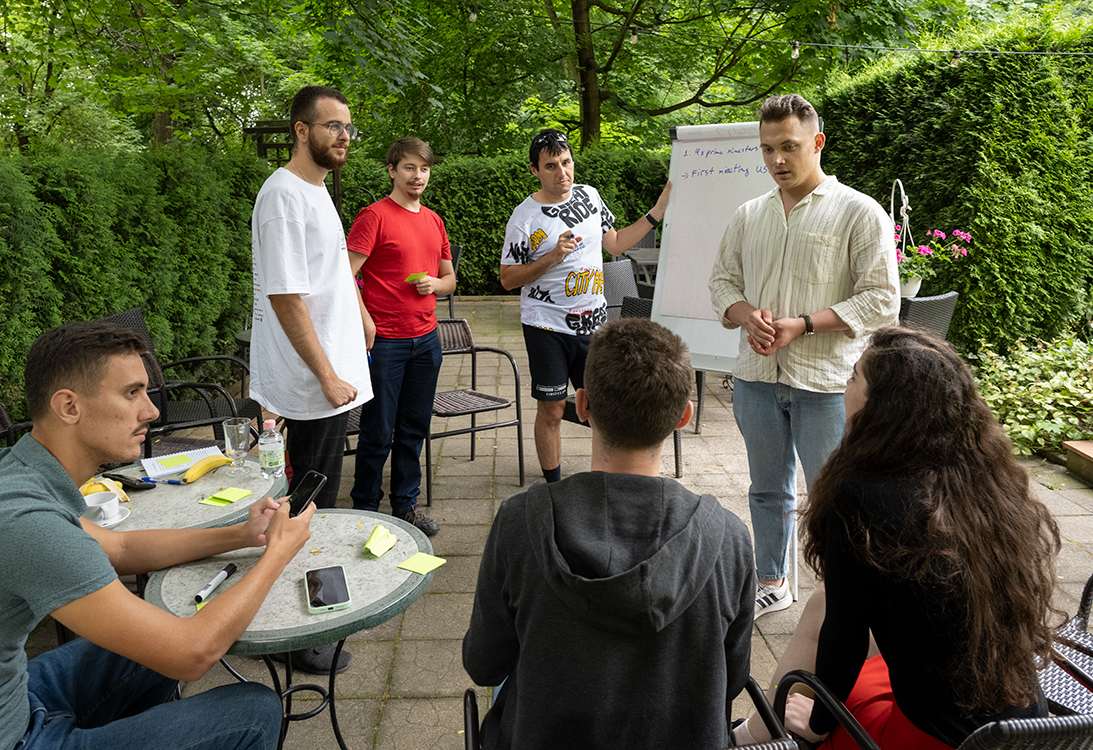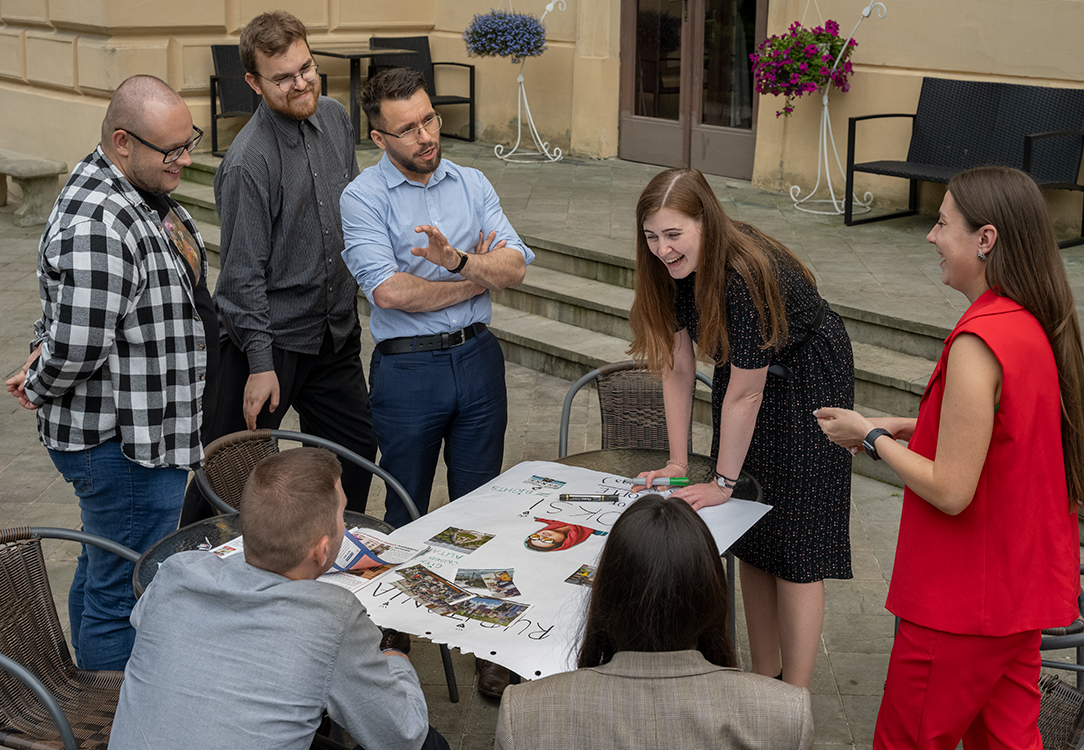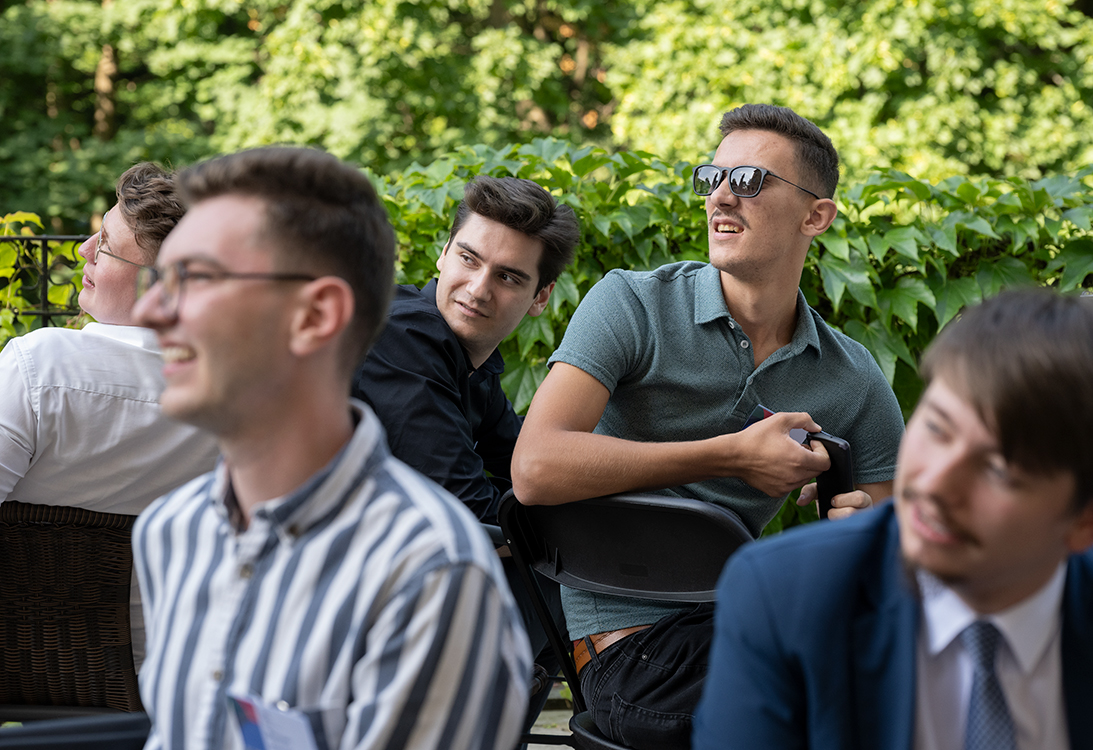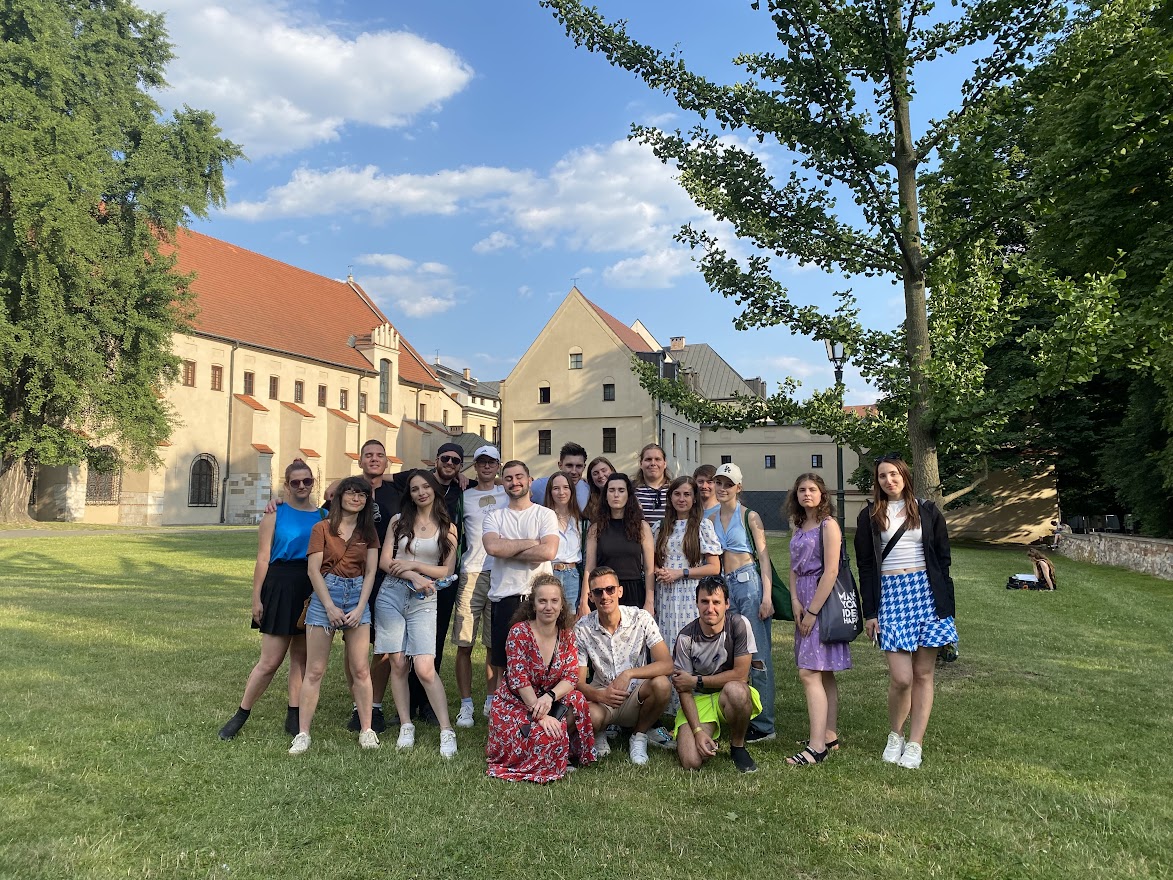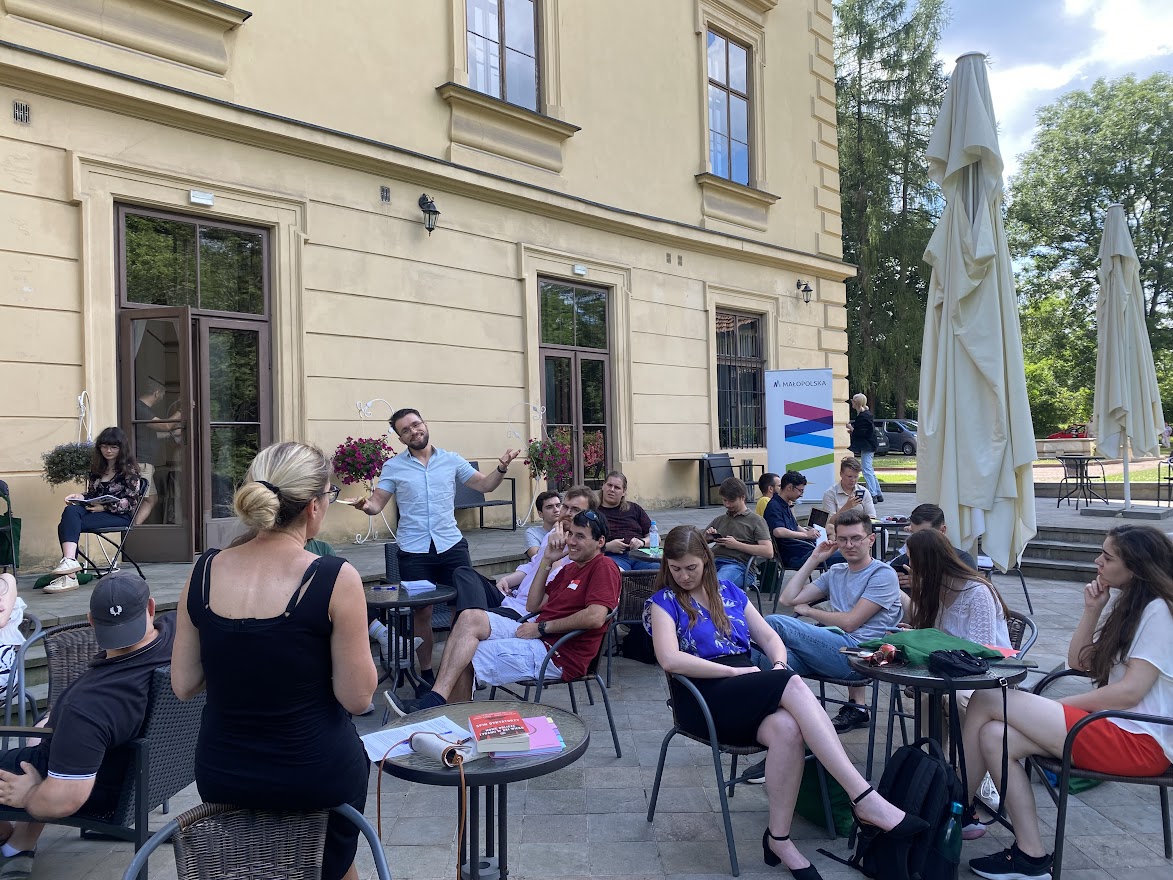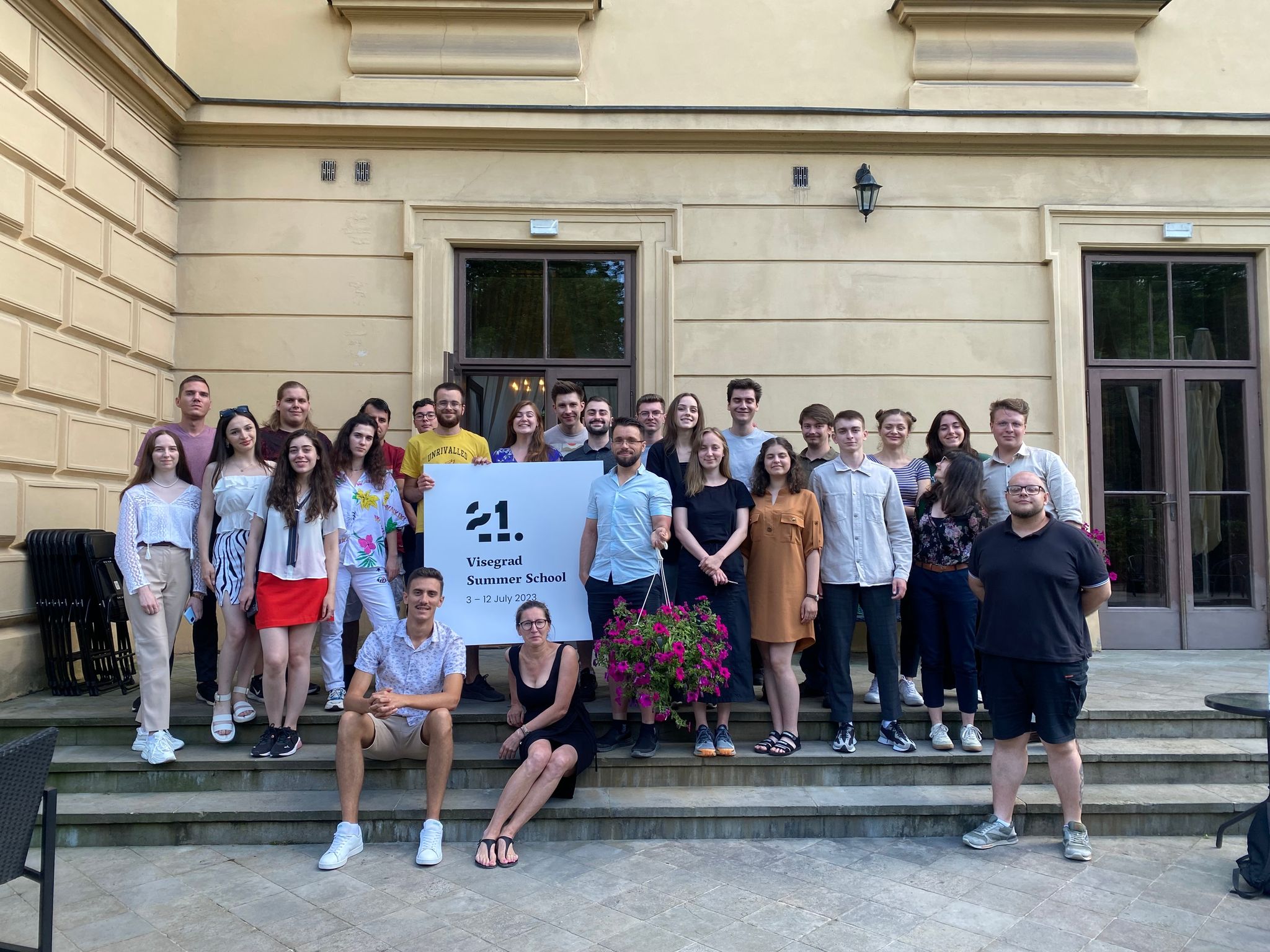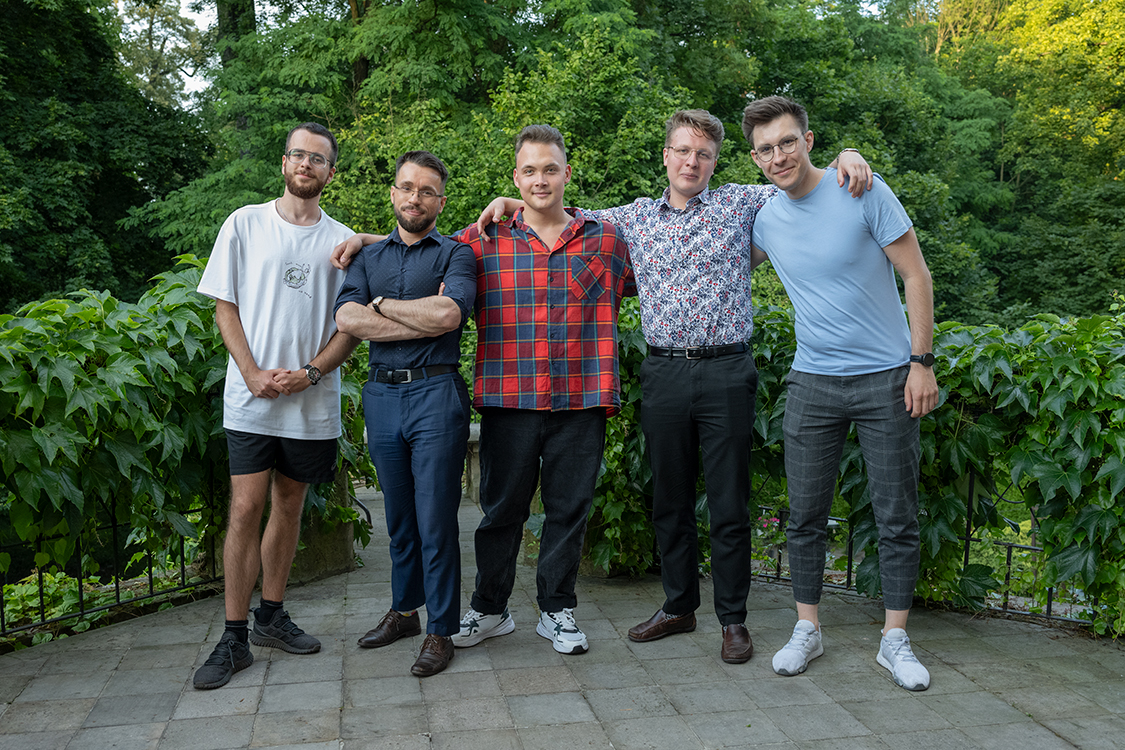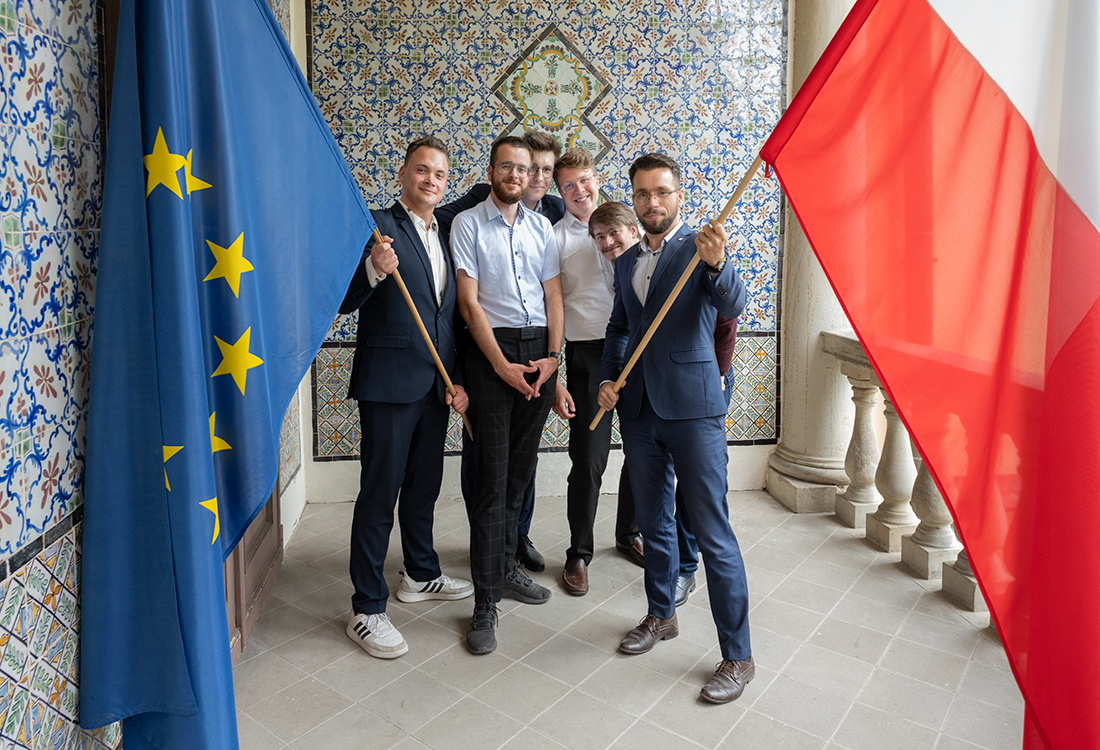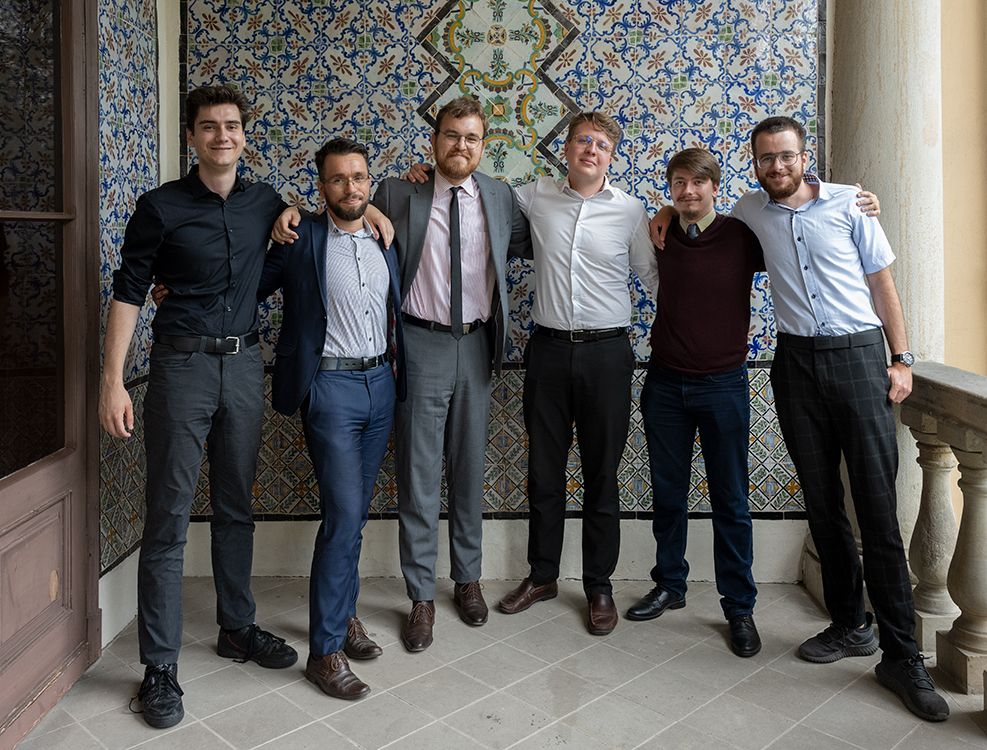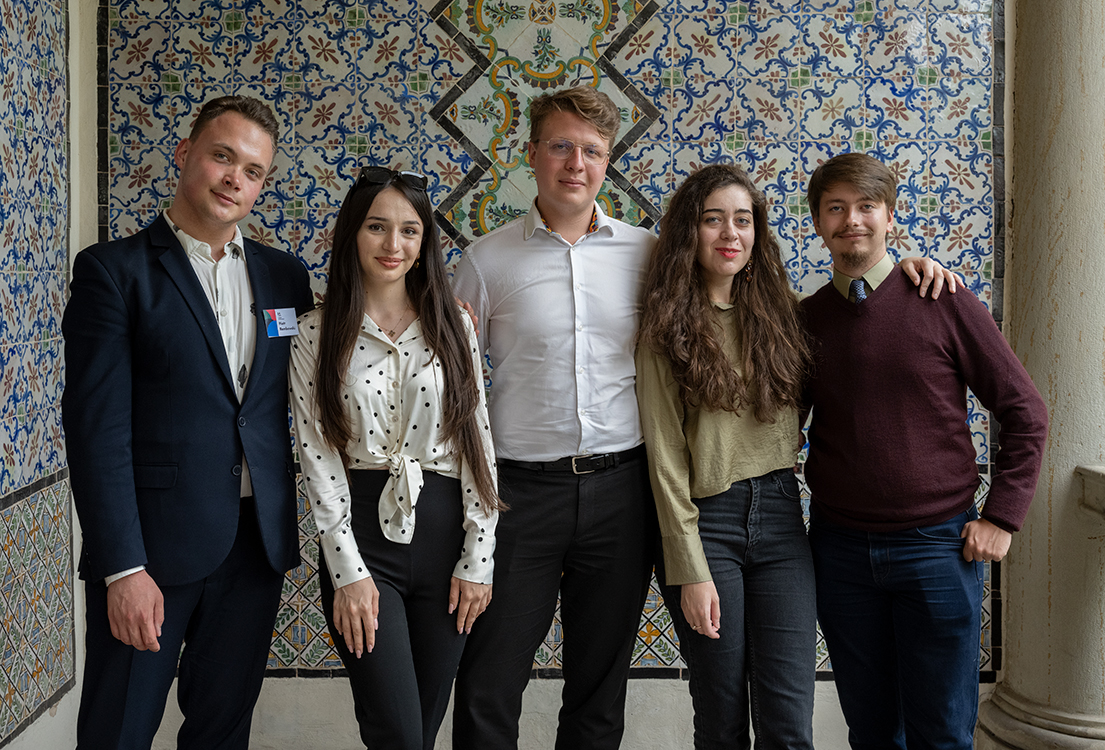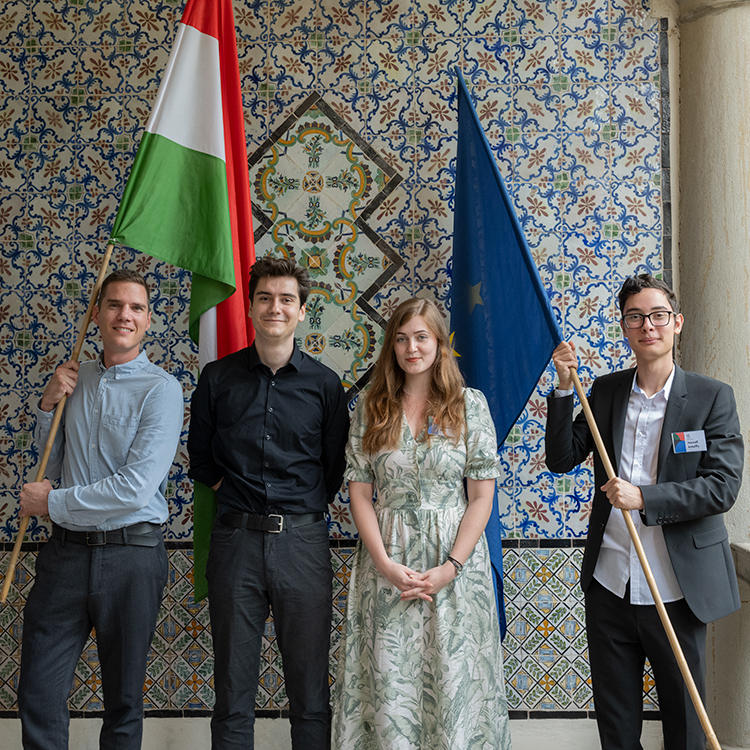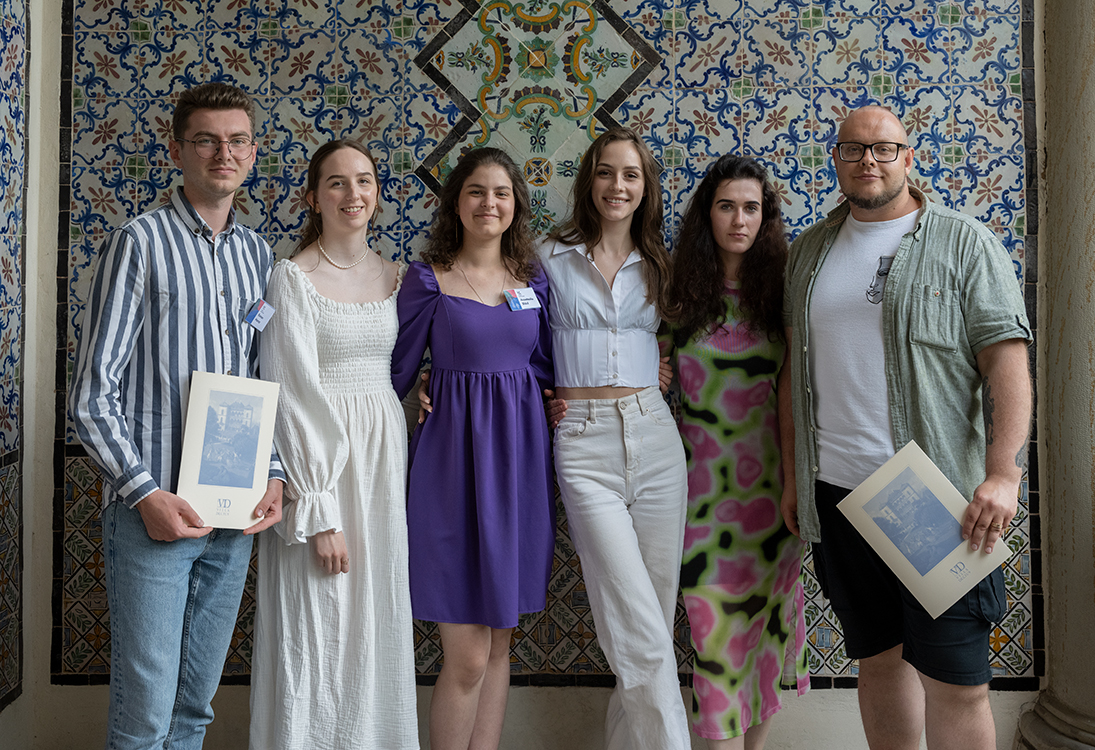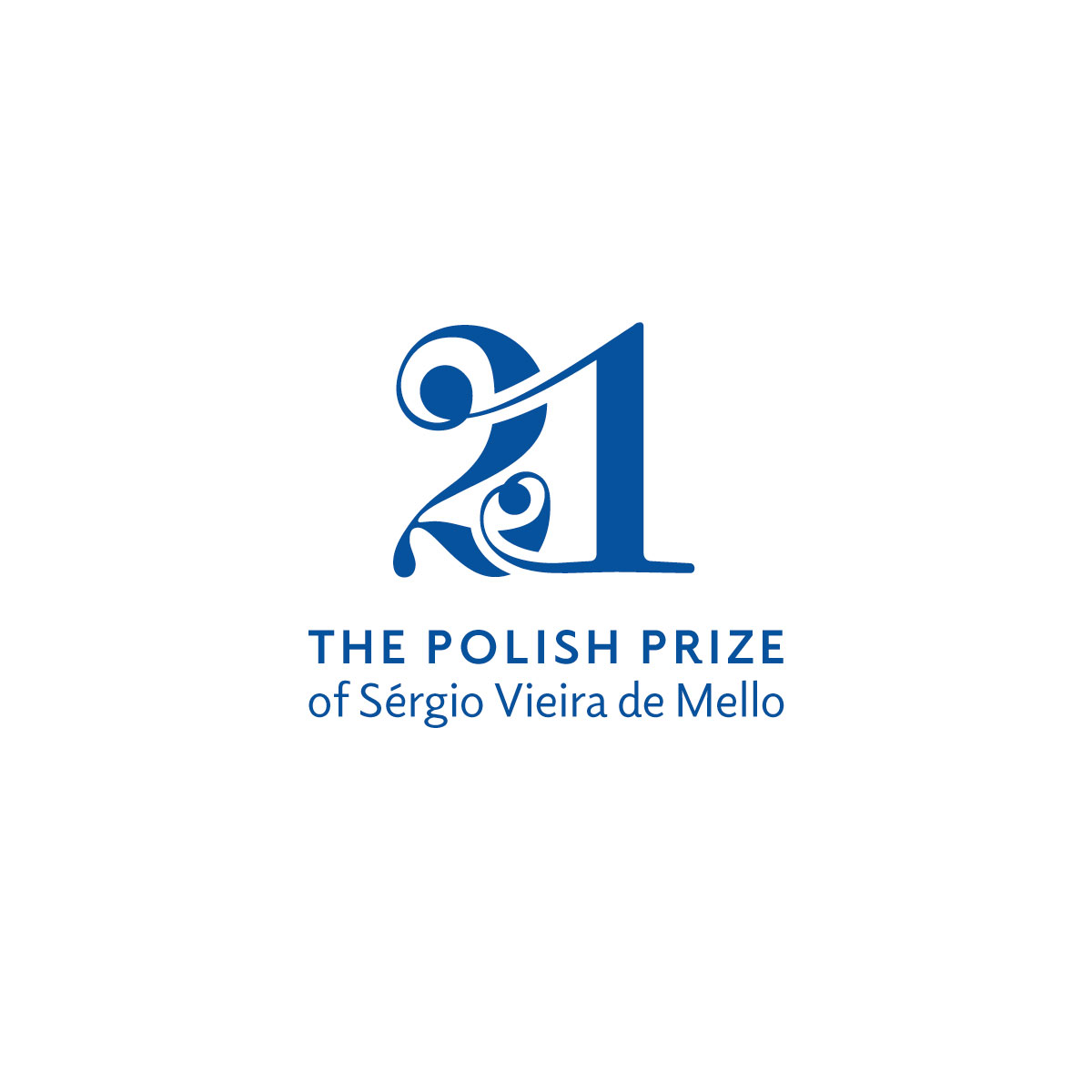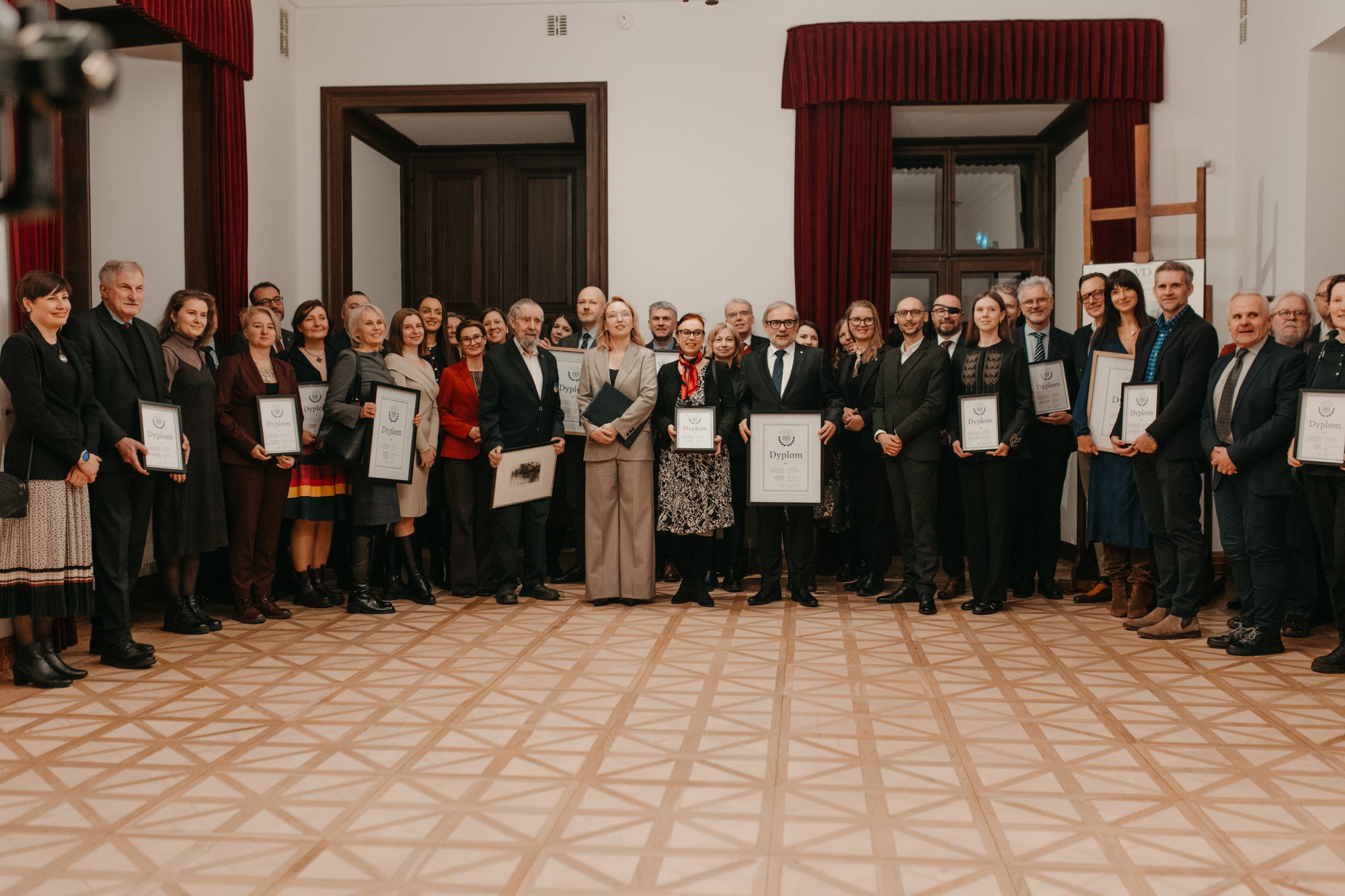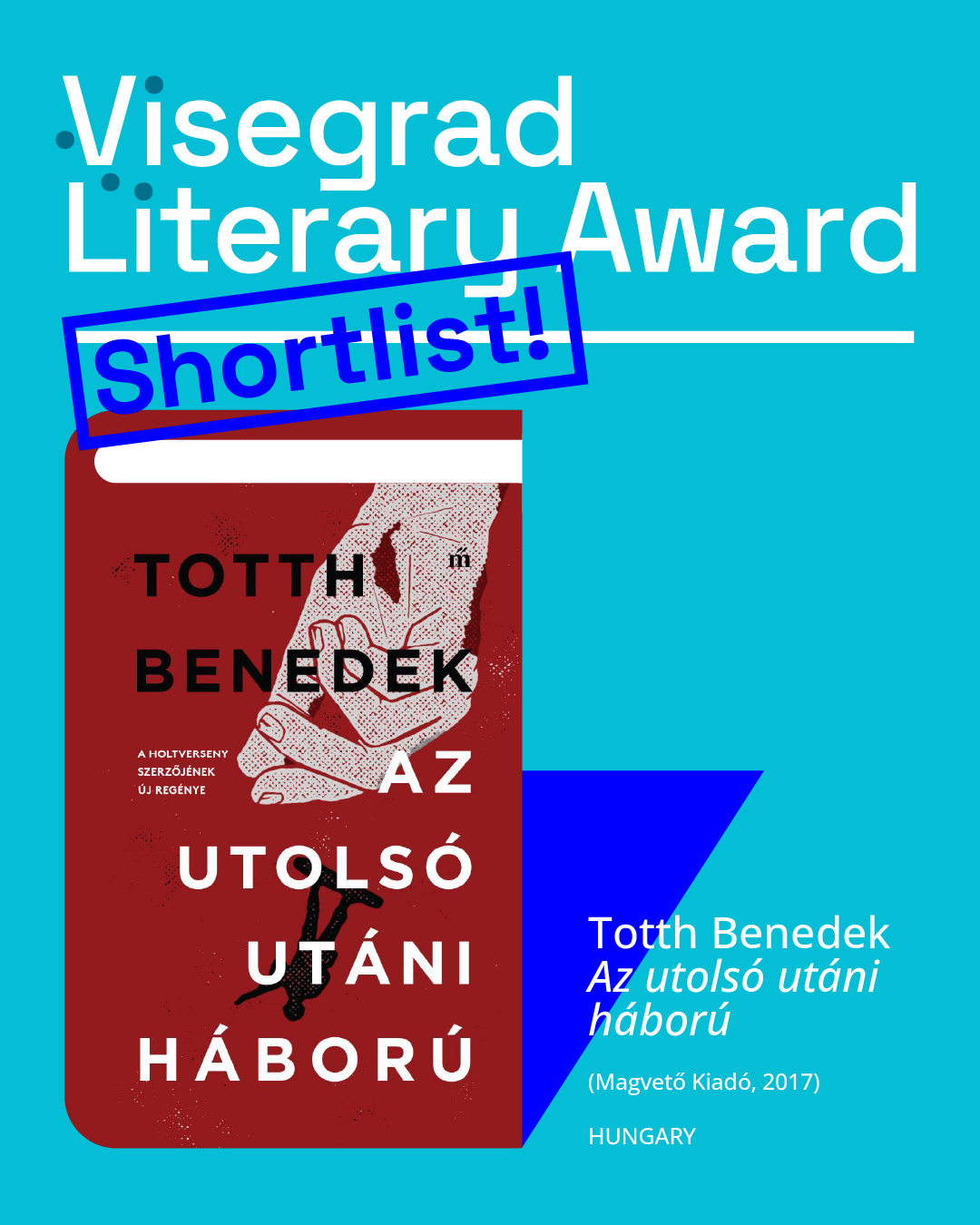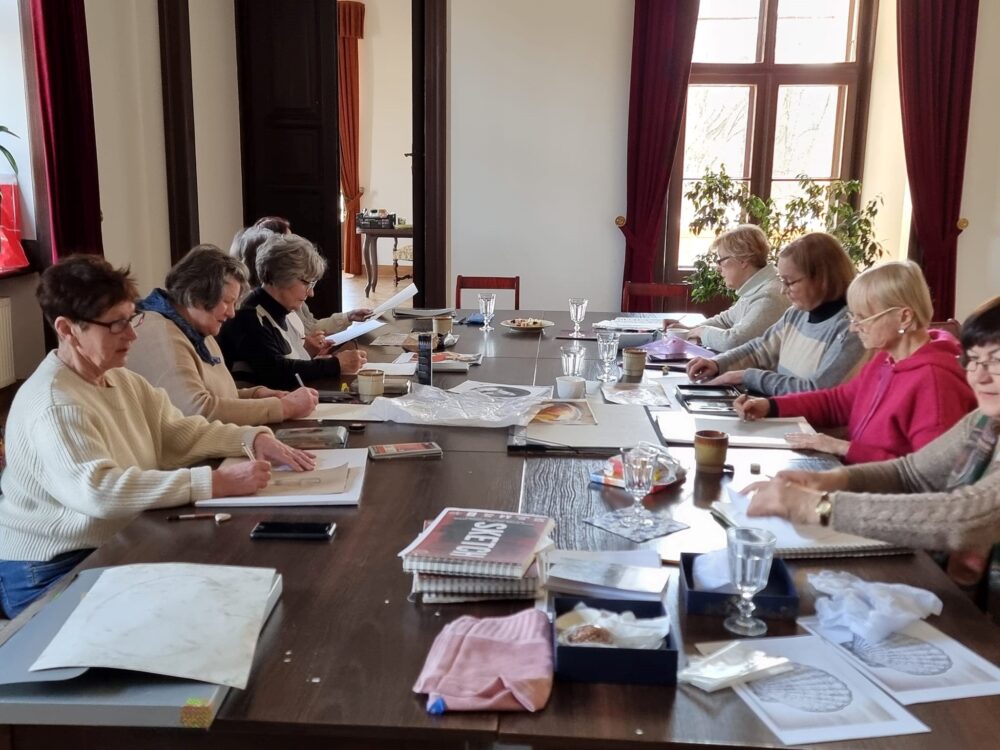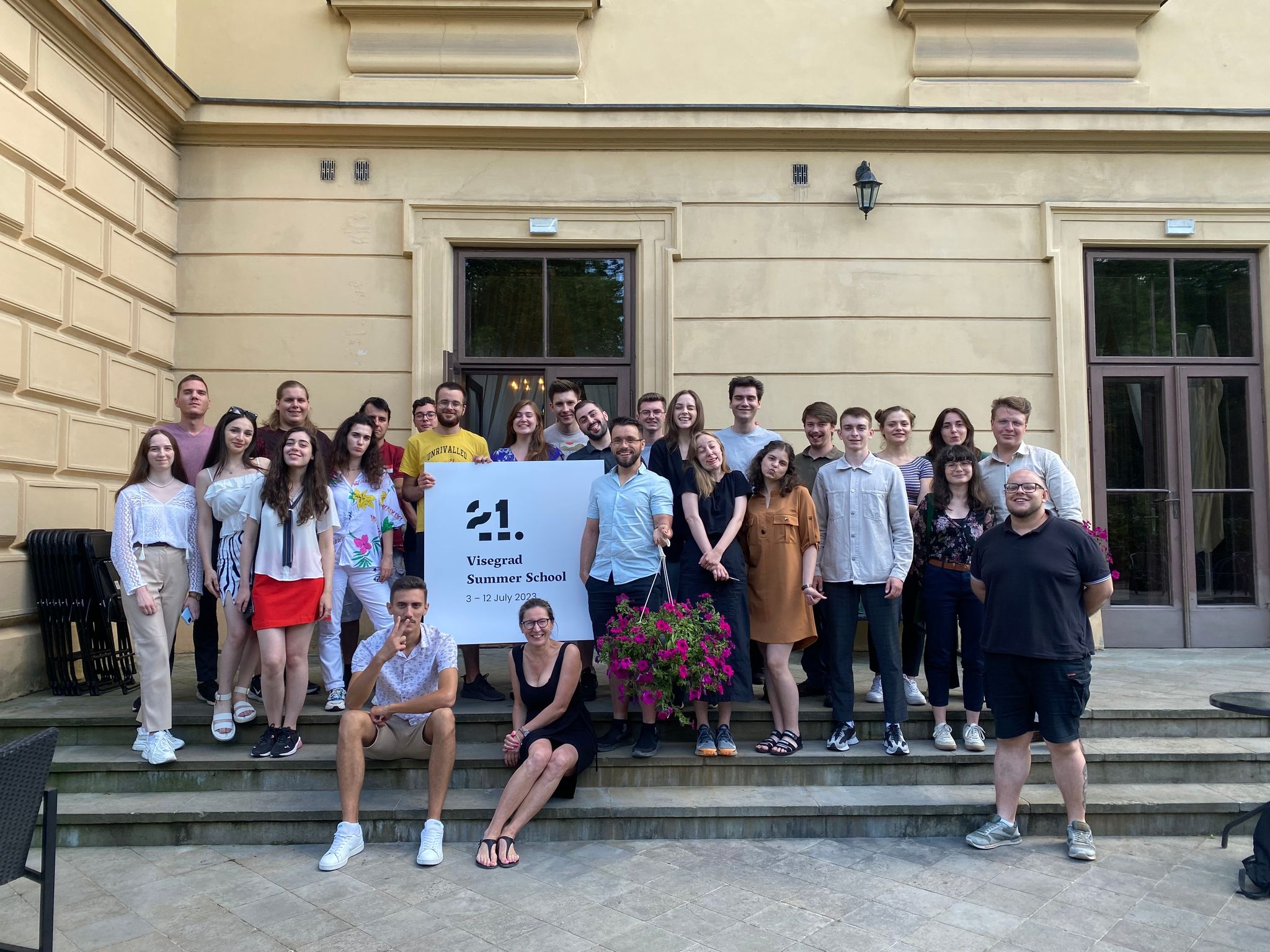 Villa Decius from July 3-12, 2023 hosted the 21st Visegrad Summer School, a unique educational and cultural program aimed at students, graduates, young researchers and professionals from Slovakia, the Czech Republic, Poland and Hungary, as well as other Central and Eastern European countries.
Villa Decius from July 3-12, 2023 hosted the 21st Visegrad Summer School, a unique educational and cultural program aimed at students, graduates, young researchers and professionals from Slovakia, the Czech Republic, Poland and Hungary, as well as other Central and Eastern European countries.
Over the past 20 years, the Visegrad Summer School has become not only a platform for knowledge exchange and peer discussion, but also an important instrument for integrating active people from across the region. During this year’s edition of the School, we hosted 30 participants from 11 countries, including the Visegrad Group countries, Ukraine, Albania, Azerbaijan, Georgia, Slovenia, Romania and Bulgaria.
Among the invited guests, we were proud to welcome experts from all over Europe. We were honored to host, among others. H.E. Rastislav Káčer, Former Minister of Foreign and European Affairs of the Slovak Republic, H.E. Petr Mareš, Director of the International Visegrad Fund, Michael Žantovský, Director of the Václav Havel Library, Helge Lunde, Director of the International Network of Writers’ Refuge Cities (ICORN), Rafal Domisiewicz, Head of the Western Europe Division at the Department of European Policy of the Ministry of Foreign Affairs, Márta Ritecz-Sekulic, Consul General of Hungary in Krakow, Tibor Opěla, First Secretary of the Embassy of the Czech Republic in Warsaw, Michal Vašečka, Representative of the Slovak Republic to the European Commission against Racism and Intolerance (ECRI), Director of the Bratislava Policy Institute, Anikó Bakonyi, Director of the Refugee program at the Hungarian Helsinki Committee, Nadia Ivanova, Director of the Center for Human Rights and Democracy People in Need in the Czech Republic, Hanna Machińska, lawyer and academic teacher, Irena Dawid-Olczyk and Joanna Garnier, Director and Vice-director of the La Strada Foundation, Iwona Jakimowicz-Pisarska, Professor at the Polish Naval Academy of the Heroes of Westerplatte or Konrad Maj, Head of the HumanTech Meetings project at SWPS University in Warsaw.
The 21st edition of the Visegrad Summer School began a series of editions dedicated to forecasting and designing the future. The main elements of this year’s School were workshops on future literacy, during which participants learned about methods of thinking about the future, saw to what extent their ideas about the future influence the decisions they make, and deconstructed the conscious and unconscious assumptions that influence thinking about the future of human rights. What does the future hold for human rights? What kind of world will we be living in 20 years from now? – these were just some of the questions our participants faced during the workshop, led by specialists from The Futures Literacy Company (4CF) Anna Sacio-Szymanska and Karol Wasilewski.
The activities of the 21st Visegrad Summer School were accompanied by study visits, including a visit to the Auschwitz-Birkenau Museum, where participants faced the history and heritage of the site, and a guided tour of the center of Krakow, where participants learned about the most interesting plots and characters that contributed to the development of the city. The School’s participants also prepared a multicultural evening, during which they presented the countries from which they come.
During the official closing session of this year’s School, participants listened to a lecture on the activities and activities of the Visegrad Fund, given by the Director of the International Visegrad Fund, JE Petr Mareš.
How to estimate the 21st Visegrad Summer School in numbers?
– 30 participants from 11 countries (V4 countries, Ukraine, Albania, Azerbaijan, Georgia, Albania, Azerbaijan, Georgia, Slovenia, Romania and Bulgaria);
– more than 600 photos
– 80 hours of lectures and workshops
– 15 hours of additional program
– 25 experts and guests
– 10 organizations that supported our activities throughout the year
– min. 25 social media posts that were displayed by nearly 25 thousand people (statistics are constantly updated).
The implementation of the Visegrad Summer School would not have been possible had it not been for the financial and substantive support received from our long-standing partners: the International Visegrad Fund, the Marshal’s Office of the Malopolska Region, the City of Krakow and the ZUE Group.
We would also especially like to thank our partners deployed in various countries: Patricia Pászt of the Cracovia Express Foundation in Budapest, H.E. Michael Žantovski of the Vaclav Havel Library in Prague, Viera Žúborová of the Bratislava Policy Institute, and Armela Barçi of People in Focus in Albania.
